THE TRINITY VOICE
HEADMASTER’S DAY
Seniors and sixth graders make a splash at the water balloon toss.

NEWS OPINIONS FOCUS
English teacher Susan Lilley retires from Trinity after 26 years.
LIFESTYLES
Di erent ways to spend your summer to make it count.
Positive reinforcement has more power than you might think.
The debate over the ethics of philanthropy continues. Pages 4-5

Page 13 Page 1O
13 seniors commit to play sports at collegiate level.


SPORTS
Page 26-29 Page 2O
2O23
25 Issue 7 Trinity Preparatory School
Lane
May
Volume
57OO Trinity Prep
Winter Park, FL 32792
Photo Collage on Back Cover
TABLE OF
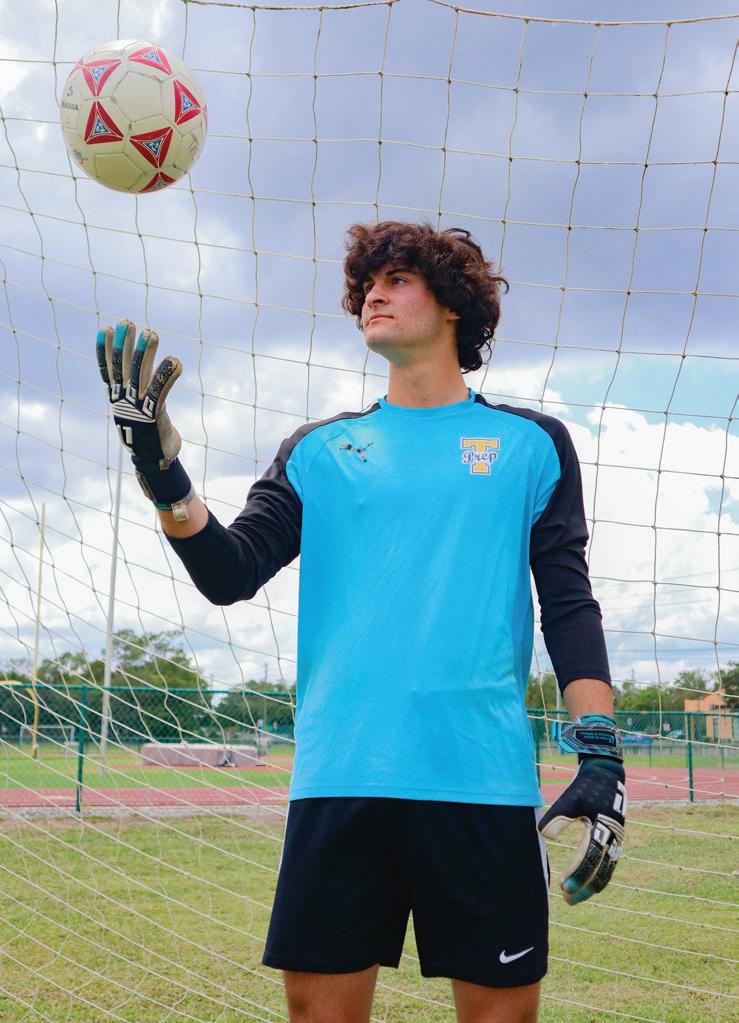













e Trinity Voice is a member of the Florida Scholastic Press Association and the National Scholastic Press Association.
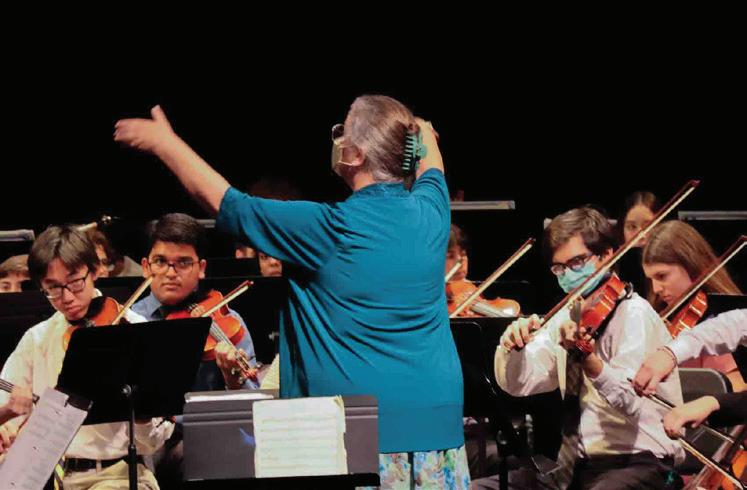

















e Trinity Voice is produced by the newspaper/journalism class at Trinity Preparatory School of Florida. Editorials represent the opinion of e Trinity Voice writer and are not necessarily the views of the administration, faculty, or Board of Trustees of Trinity. e Voice welcomes letters to the editor and freelance articles or photography. All submissions become the property of e Voice. Please send all correspondence to 5700 Trinity Prep Lane, FL 32792. e Voice may also be contacted via phone at 407-671-4140 and via e-mail at voice@trinityprep.org. For information regarding the purchase of advertising within e Voice, contact us by one of the methods mentioned above. The Voice is a monthly publication during the school year (with the exceptions of November and January).

CONTENTS May 2O23 Table of Contents
VOICE@TRINITYPREP.ORG THETRINITYVOICE.COM @TRINITY_VOICE @THETRINITYVOICE “THE TRINITY VOICE” Thank You Chocolate Farmers 16-17 14-15 Pole Vaulting BWL Champions 25 News Lilley Leaves O4-O5 O6 May Moves On Stricklin Steps Away O7 College Rankings O8 South African Exchange O9 Summer Bucket List Esports 11 Lifestyles 1O Focus Praise and Growth 13 Opinions Childhood Messaging 18-19 Philanthropy Problems 2O-21 Spelling Bee 22 College Acceptances 23 Sports 24 College Commitments 26-29 Pages 2O-21 Andrew Edwards Pages 26-29
Pages 6 Olivia
Olivia Kortman
Prince
STAFF
Editor-in-Chief: Taylor Riley
Managing Editors: Karthik Stead, David Steinberg, Ana Carolina

Marques, Peyton Alch
Copy Editor: Sammy Lou
Layout Editors: Peyton Alch, Lucy
Chong
Social Media Editor: David Bryskin
News Department: Zach Kleiman (Editor), Julian Sealy, Alec Diaz, Karthik
Stead, Laziza Talipova, Iris Lei
Opinions Department: Amanda Rose
DeStefano (Editor), Reese Taylor, Abby Hernan, Jack Ververis
Focus Department: Fay Zhao (Editor), Peyton Alch, Lucy Chong, Marcos
Membreno
Lifestyles Department: Laziza



Talipova (Editor), Jack Aaron, Kaylee
Ortega, Boaz Kim, Victoria Berube, Sammy Lou, Sarah Zehnder
Sports Department: David Hull (Editor), David Steinberg
Podcast Department:Mohil Kapadia (Editor), Sreekar Nagulapalli, Aetant Prakash
Graphics Department: Caden Liu (Editor), Austin Yuan, Andrew Edwards, Amy-Ruth Gyang, Lia Garibay
Photo Department: Olivia Kortman & Olivia Prince (Editors), Andrew Edwards, Raheel Patel, Anna Miliotes
Fact Checking Editor: Jack Aaron
Business Manager: Iris Lei
Adviser: Erin Miller
Saint Talk

This Month’s Podcasts:
Ep.4 - 74 Questions with Ms. Lilley
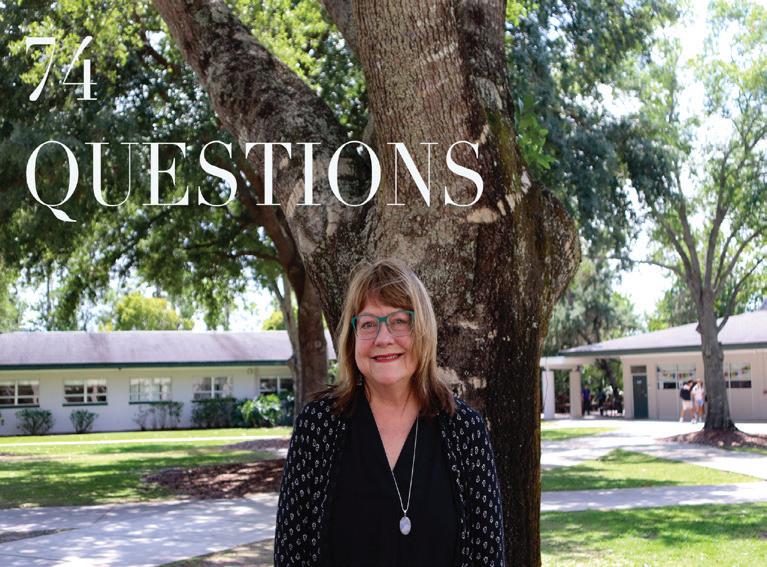

In this episode on this award winning podcast series, Aetant Prakash asks Ms. Lilley 74 questions about her life, inspired by Vogue’s “73 Questions” series. Hear about everything from her make-up routine to why she writes.
Ep.5 - Mr. Langdon’s Goodbye
A coach, a teacher, and a friend to many for the past 1O years, Mr. David Langdon is a one-of-a-kind faculty member. Mohil Kapadia talks with Langdon, about his experiences at Trinity Prep and his new beginning at the Geneva School. Hear more about his WinThe-Day mentality.

3 May 2O23 Sta /Podcast
Blurbs by Aetant Prakash, Sreekar Nagulapalli, and Mohil Kapadia
Photos by Olivia Prince and Olivia Kortman
LILLEY’S LITERARY LEGACY
 Article by Abby Hernan Photos courtesy of Susan Lilley
Article by Abby Hernan Photos courtesy of Susan Lilley

When Susan Lilley was in high school, Trinity Preparatory School had just opened. While she chose not to attend, her two brothers did. Little did she know, she would spend more time here than either of them did.
Her rst memories of Trinity are when her brothers would receive a pink slip in the mail. At the time, a pink slip meant that you were in trouble for either grades or behavior.

“ e most dreaded moment in our house was if… I saw a thing from Trinity with a pink slip in it,” Lilley said. “I was like, Whew, I’m gonna be gone tonight… it is a classic wait until your dad gets home, and there will be some reworks.”
However, she remembers her brothers’ time at Trinity as being very fun. Whether it was sports games or the Renaissance fair where everyone would dress up in a Shakespearean out t and play games in the quad, she always liked the idea of Trinity.
After she nished her master’s degree in literature, she worked as a corporate writer at Tupperware where she was the head of the company’s publications, running a newsletter and the monthly magazine for the sale’s force. However, after a while, she wanted a change.
“I just got tired of writing about plastic bowls and the people who sell them,” Lilley said. “So there was an opening at UCF for an instructor which I was quali ed to do with my master’s and I got the job.”

At the University of Central Florida, she fell in love with teaching and the freedom she was a orded. As long as she met the goals for her students, she could switch books, so she would not have to do the same thing everyday. Teaching brought a variety that her old job did not.
As her daughter entered middle school at Trinity, there was also an opening for an English teacher. After getting the job, she quickly had to learn how to adjust from teaching college students to teaching high schoolers.
“It was rough at rst, but I grew to really love it. I just love that age group,” Lilley said. “With college students, everyone’s got this mask of sophistication like I know what I’m doing, even though I really don’t. In high school, people tend to have their hearts on their sleeve.
And there, in such an interesting stage of development, it’s just really fun when they learn things with the light in their eyes.”
Lilley has taught tenth grade English, eleventh grade English, creative writing, Christianity and lm, and AP English Literature. Her favorite class to teach is AP Lit because she wants to spread her love of literature and develop her students into lifetime writers. Inside the classroom, Lilley brings to life the books her students read.
“Miss Lilley made [Richard III] super dramatic, and she played the drama of the storyline up,” English teacher and Lilley’s former student Hannah Schlutter. “Every time she wore a owing black cape or shawl, and then she would use that as part of the drama of class. I always loved that. I thought it was so funny.”
Not only has Lilley left a mark inside the classroom, but she has excelled outside the classroom. She, along with one of her students Molly Mae, started a literary magazine at Trinity called “Skylight.” She also was the student council sponsor. While it was stressful, she has
After she rst arrived at Trinity, Lilley read from a UCF literary magazine at an open mic for Trinity’s literary magazine “Sky-
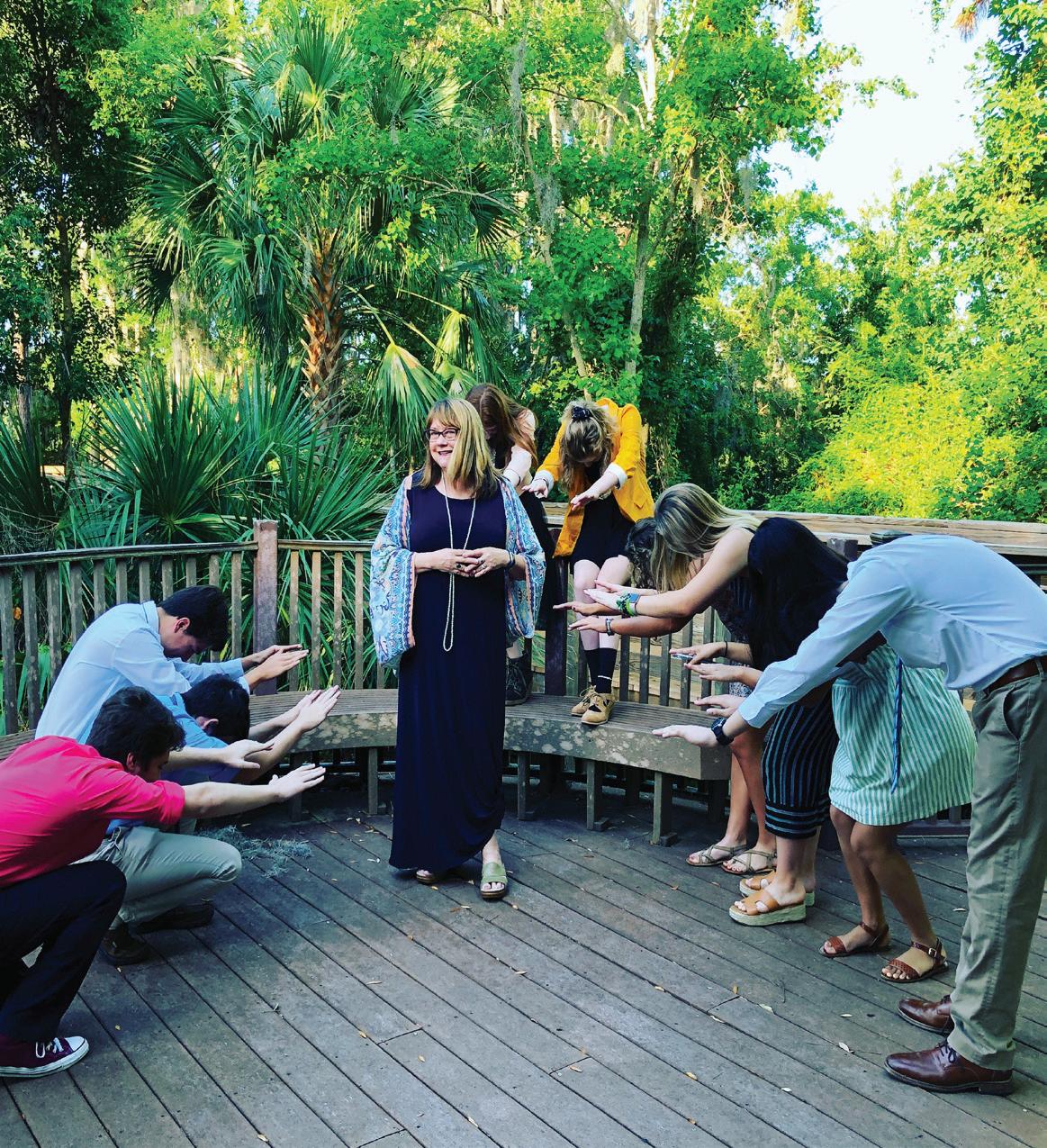

May 2O23 4 News
Lilley leaves an indelible mark on Trinity after 26 years

fond memories of being the sponsor. One of her memories was when the seniors wanted to break the world record for longest paper clip chain. ey stayed up all night in the library together, clipping paper clips. While they did not break the record, they managed to make a paper clip chain that stretched around the track.
Even though she is not student council sponsor anymore, recently, she has become the English department chair. Her favorite part of being department chair is being able to visit all the English classes.
“It’s so impressive to see what people are doing in their classes,” Lilley said. “I learn something every time I go into another class and observe, and it makes me really proud of what we do here in education. It has been a real joy. It’s brought me closer to department members and in a really interesting way. I love supporting them and what they do, and it’s just been a real pleasure because we have such a strong team.”
Lilley’s success is not only con ned to Trinity. While teaching at Trinity, she has also taught a night class at Rollins once a week. Not only did she teach traditional classes, but she also taught the adult program at the school. is program allowed her to see people come back and nish a degree that they had not been able to before; she watched them reach their goals and also be a good role model to the younger students.
Lilley was also the rst poet laureate of Orlando. As a literary citizen, she was able to
learn new ways to support creative writing and poetry within her community. For Trinity’s 50th anniversary, Lilley curated a poem about


advisories.

“I’ve just been really lucky to have incredible advisory groups,” Lilley said. “I only go to prom when my advisory is seniors. A few advisories ago, they bought me a little tiara, so I could be their prom queen. It was hysterical. Here’s this teacher with a prom queen crown on. Advisory has been a special relationship for me. And I keep up with a lot of that after they’re gone on to having beautiful lives.”
She has left a literary legacy at Trinity through her teaching. Her favorite part of teaching is to get student’s di erent perspectives on books. She encourages them to think beyond the text in front of them.
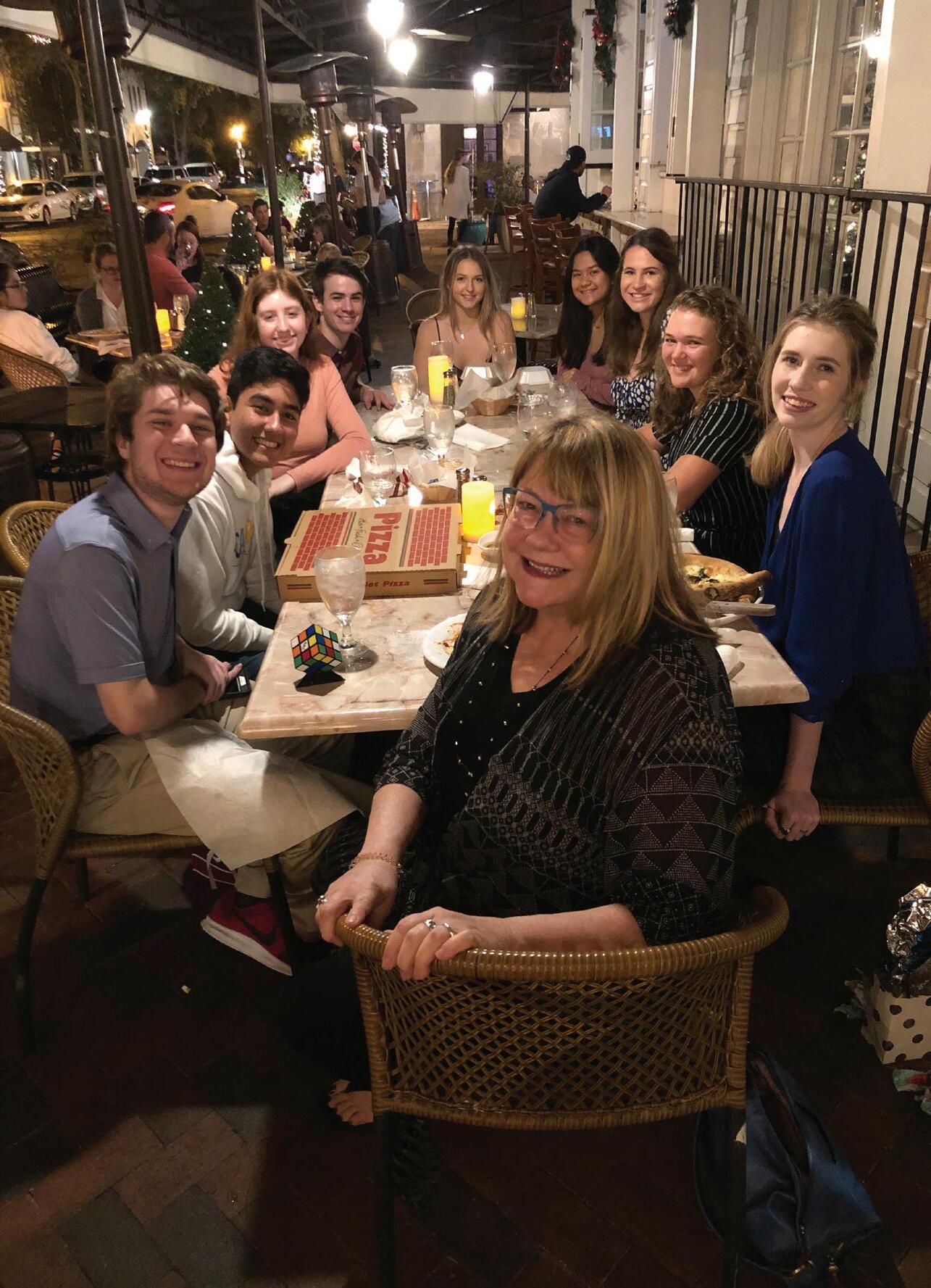
“She made us think beyond the text more so than I probably had ever done,” Schlutter said. “She challenged us in ways that I didn’t know that I could accomplish but then once I did it, she just kind of looked at us and was like see I told you.”
Her plans for retirement are to write a lot more and go on many adventures. is summer, she and three other writers will go on a writing retreat in New Hampshire where they write all day then at night, they cook, laugh and play cards. She also wants to do a road trip to New Orleans and visit countries such as Ireland, Spain or Italy.
the school. Asking many alumni to share stories of something they learned at Trinity, Lilley then compiled the stories into a poem titled “I Learned It Here.”
While she is retiring after 26 years at Trinity, one thing she will continue to remember is her
May 2O23 News 5
Lilley at a dinner with her advisory which is a tradition she has kept.
MAY TAKES A FINAL BOW
Fine Arts teacher Maureen May retires after 18 years at Trinity
Fine arts teacher Maureen May has a long history with Trinity, starting her position in 2005 and expanding the orchestra program since then. She is retiring at the end of the year after 18 years of teaching.

May started teaching at Trinity as a parttime teacher with her husband, Jonathan May. He was behind the creation of the orchestra program and the Jonathan May Foundation.
“He was always adamant about making sure everyone has the opportunity to play, no matter their nancial abilities,” May said.

May switched to working fulltime after her husband passed away in 2010 so that her youngest son could attend Trinity. According to her, when she began teaching, the school’s setup was di erent.
“ e faculty was smaller, [and] the administration was smaller,” May said. “ ere was a lot of excitement around [adding to] an orchestra program because…there were two orchestras for [students] who just started and people who had already played.”
She added four more levels from the starting two, including chamber music and AP Music eory. e Jonathan May Foundation also supports the Metropolitan Area Youth Symphony (MAYS). According to the Jonathan May Foundation Website, this is done through o ering scholarships for the students
involved, funding for concerts and assistance with fundraising initiatives.

“We try to scholarship students who couldn’t otherwise go to camp, or if we have an instrument need, we [cover the expense] and help them further that ability,” May said. “Hopefully, when they get to college, they have that ability to get scholarship money.”
stitches afterward.
“You tend to remember those things that are unexpected,” May said. “One of the memorable things is when we did Star Wars six years ago.”
e concert was made memorable from the use of lightsaber bows. ey were created using laments connected to batteries put on the bows, and they lit up in the dark. Seeing the improvement of students with their instruments is her favorite part of teaching.
“Having students be able to go from beginning all the way to the end [and] the fact that I could see them all the way through that really is my favorite part,” May said.
May plans on remaining involved with orchestra in her retirement as she plans on continuing to participate in multiple orchestras outside of Trinity.
and has been in orchestra since sixth grade. She said May’s teaching greatly impacted her from her start in the beginner’s orchestra to chamber orchestra.
“One of the few reasons I stayed in orchestra was because I liked [Ms. May] so much,” Hayes said.
According to May, her time teaching has been memorable because of unexpected situations that always keep her on her toes. A student once got hit in the head with another student’s electric guitar and had to receive
“First and foremost, I plan to play a lot with my grandchildren. But I perform a lot [with] the cello,” May said. “I’ll still play with the Philharmonic, Orlando Philharmonic, and [the] Bach Festival Orchestra too, and I’m looking at kind of expanding some of my solo cello playing. We’ll see where that takes me.”
Sophomore Lauren Hayes plays the violin
Article by Iris Lei
May 2O23 News 6
Photo by Olivia Prince
Fine arts teacher Maureen May conducts the orchestra during Easter Chapel. She has expanded the orchestra department since joining full-time in 2010.
STRICKLIN SAYS GOODBYE
Article by Kaylee Ortega
Photo by Raheel Patel
When Anne Marie Stricklin was a swimmer in high school, she developed a habit of helping the younger children on her club team learn to swim. She never imagined that it would develop into her passion — a successful coaching career that she would continue for nearly 30 years.
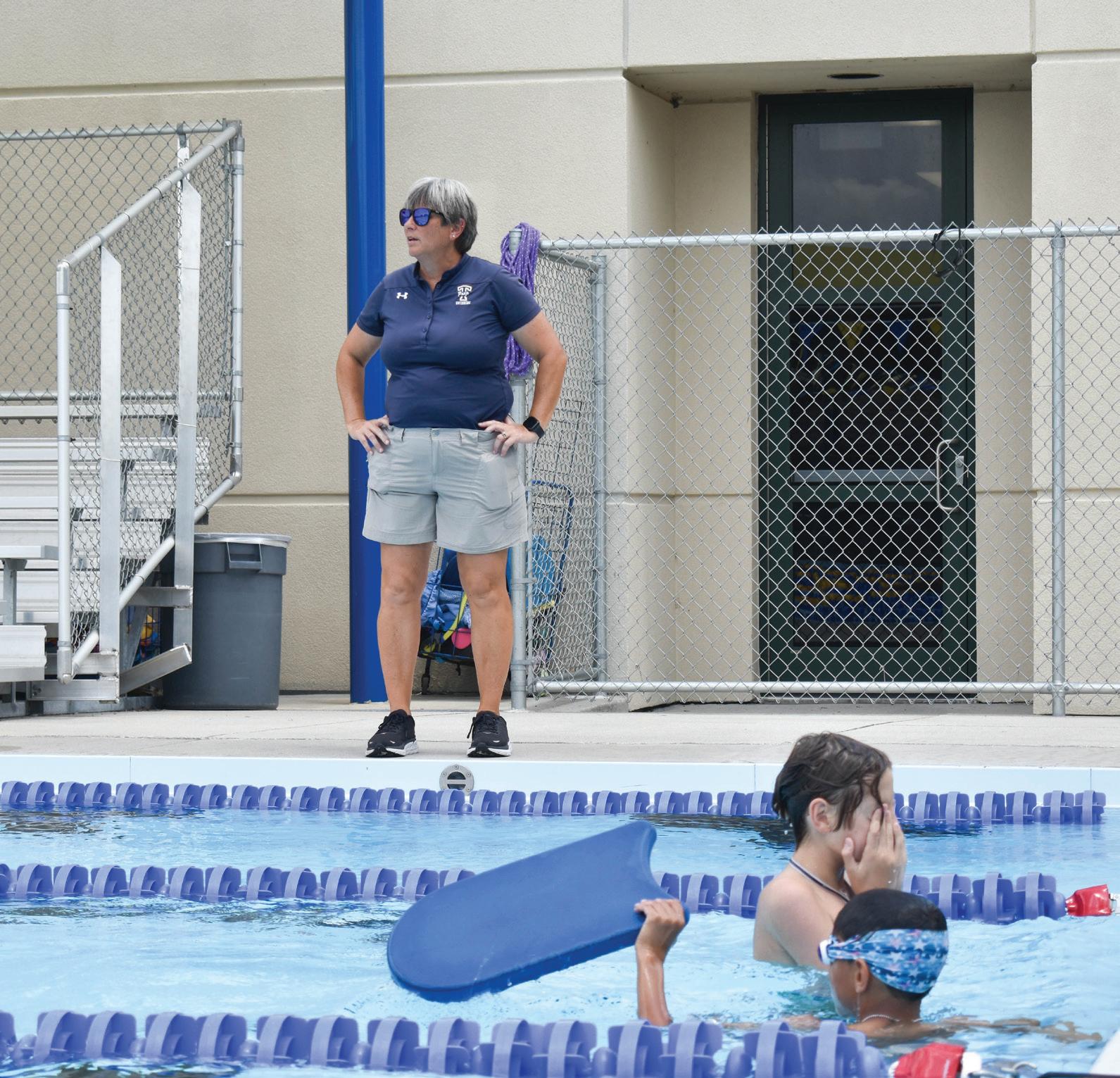
As a competitive swimmer, Stricklin recieved many titles, including being a ve time High School All-American, two time Collegiate All-American, a quali er for the Olympic trials in 1992 and featured in Sports Illustrated Magazine “Faces in the Crowd.”
Stricklin has used her experience as a collegiate athlete while coaching, saying that her experience has given her the opportunity to teach athletes how to push themselves on a daily basis.
“If there is one thing that I have learned over the years, it is that you always have to come
to push yourself and do things that you may have never thought were feasible,” Stricklin said.


Upon her graduation from the University of South Carolina and the end of her collegiate swimming career, Stricklin spent three years as a graduate assistant swim coach at Auburn University.
“While I was at Auburn, I tried to learn as
much as I could about putting a program together, pushing swimmers to become the best, and creating team chemistry,” Stricklin said. “ e success that we had at Auburn during my three years hooked me on ‘this is the job
has succeeded in leading the boys and girls swim team to win titles, most notably the 2022 district championships, and inspiring many swimmers to continue their athletic careers beyond high school.

“My goal as a coach is always to pass on my passion for swimming to your swimmers but most importantly teach them to be better individuals,” Stricklin said.
“Watching swimmers achieve best times, qualify for a speci c meet or win championships, have been so rewarding.”
After 17 years of coaching Trinity’s swim team, Stricklin will be moving in order for her husband to accept a position at Georgia Institute of Technology, and has received a few coaching opportunities in the area.
ough her time at Trinity will soon come to an end, her passion for swimming will remain.
“Over the years, I have enjoyed watch-

I want to do.’ It was a lot of hard work but it has taught me how to be the coach that I am today.”
After leaving her position at the University of South Carolina, Stricklin moved from Georgia Southern University, Northern Illinois University and the University of Notre Dame before coaching at Trinity for 17 years. roughout her career at Trinity, Stricklin
ing children who didn’t know how to swim overcome their fears to become terri c swimmers,” Stricklin said. “Being there to help support swimmers when their race didn’t go well, helping them understand that one bad race will not de ne them, and seeing swimmers push themselves out of their comfort zone and do things that they never thought possible — those are the memories I will cherish.”
May 2O23 News 7
Coach Stricklin ends the year o one last time with the much loved swimming unit. to workout prepared
A FLAWED SYSTEM
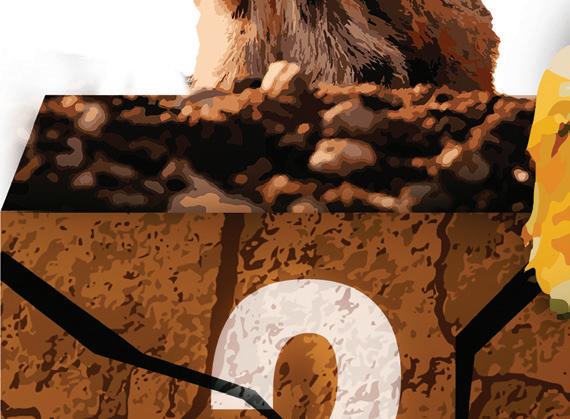
Colleges abandon U.S. News rankings, sparking concerns of legitimacy and value in higher-ed
Article by Zach Kleiman Graphic by Caden Liu



Every year, the release of U.S. News and World Report’s college rankings sends shockwaves through the academic community, with students scrambling to calculate their chances of attending a prestigious university. But, attitudes towards these rankings are shifting, sparking a nationwide conversation on the reliance of the widely recognized and in uential rankings.
In November, Yale Law School, which had been listed by U.S. News as the top law school for three decades, announced it would no longer submit data for the rankings. Over a dozen other law schools, including Harvard, Stanford, and Columbia, which all ranked in the top four, followed suit. Months later, the mass exodus continued as droves of top medical schools withdrew from the rankings, claiming that they were too ridgid and “profoundly awed.”
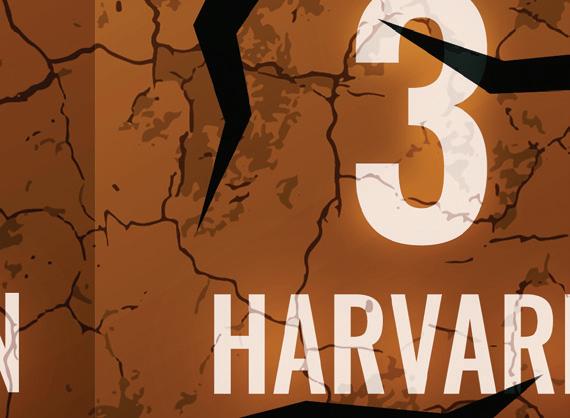
U.S. News’ annual rankings originated in 1983, and as its in uence grew, so did colleges’ tendency to take advantage of the rankings. Columbia, one of eight Ivy League schools, has long been reas one of the most prestiuniversities in the country, recent news revealed that inaccurate data was submitted for the 2022 ranking cycle.
In the wake of this incident, the manipulability of the rankings has come under scrutiny, prompting critics to question the value and dependency on these rankings, as well as the lengths col-


leges are willing to go to achieve a higher rank.
“[ e rankings are] something that can very much be hacked,” college counselor Christine Grover said. “ erefore, I don’t think it equates to the quality of undergraduate education.”










Columbia’s recent data scandal is not an isolated incident. College administrators who are critical of the rankings argue that even when the information submitted is accurate, the rankings are corrupted by how the U.S. News data team determines each factor’s weight.
e rankings utilize a complex formula that allocates percentages to various factors. However, college counselors dislike the rankings’ method due to its partial subjectivity and irrelevance. According to Grover, with 20% allocated to “expert opinion,” 20% to graduation rates, 30% to nancial resources and 30% to alumni donors, there are many ways to in uence the numbers.
“People value the rankings without understanding what they’re ranking,” Grover said.

American university culture is heavily reliant upon rankings, and with both
students and parents placing great value on a schools’ prestige, status and rank, acceptance into top-ranked schools is often equated with success and a way to secure one’s future.
However, the data scandal at Columbia and the withdrawal of rankings by Yale Law School and other top universities has caused a reevaluation of the traditional emphasis on rankings as the sole measure of a school’s worth.


“I genuinely think the actual [rank] doesn’t matter,” senior Andrew Lopez-Couto said. “Any school towards the top 30 or 40, I would rank almost the exact same overall.”



In 2011, the National Bureau of Economic Research tracked the career earnings of individuals who attended highly selective colleges and those who attended moderately selective colleges but were accepted into top colleges.
e study found that the earnings of the two groups di ered minimally, and concluded that attendance at an elite college had little impact.
While elite colleges and less selective institutions may provide a similar education, additional factors portray the elite ones as superior, including name-associated prestige and societal pressures.

Despite the possibility of more schools following in Yale Law School’s footsteps, the reputations of top universities will not be fazed. Applications will continue to ood in, bound to the notion that topranked colleges go hand-in-hand with success.
“Until more schools begin to back out of them, the rankings are here to stay,” Grover said.

May 2O23 News 8
RELATIONSHIPS REIGNITED
Trinity-South Africa student exchange is back on



 Article by Sofia Haddadin Photo courtesy of Jack Gawronski
Article by Sofia Haddadin Photo courtesy of Jack Gawronski
Trinity Prep students are always involved in something, whether it be traveling across the world, participating in community service, or both. In 2019, three high school students got the opportunity to travel to Cape Town, South Africa to work at Floreat Primary School. While there, they participated in one-on-one tutoring, helped as classroom assistants, toured the city and visited museums.
As part of the same exchange student program, six South African students were scheduled to arrive at Trinity on March 5, 2020. However, COVID-19 unfortunately shut down all possibilities of this happening.
ree years later, the exchange is back on, with the arrival of three seventh-grade students to Florida.
ey will be staying for two calendar months, leaving the last week in September. For the time the students are at school, they will attend classes at Trinity.
According to Head of School Byron Lawson, who is primarily in charge of organizing the exchange, the host families for the students arriving toward the beginning of the 2023-2024 school year have not yet been determined. With parents graciously volunteering to host the students, nal decisions will hopefully be made soon.

is exchange came out of a friendship Lawson formed with the Floreat Head of School, Noel Isaacs, about a decade ago. ey rst met at an educational conference in Cape Town where Lawson was delivering a paper.
Lawson had always had the idea of an exchange, and with this partnership, the two made it happen. Now, Trinity Prep and Floreat Primary School students can enjoy all of the bene ts that come along with international exchanges.
According to nonpro t global education company Ayusa, high school study abroad programs have been shown to encourage more open-mindedness. Lawson and Ayusa agreed that travel carries many positive impacts.
Furthermore, during a conversation Lawson had with Isaacs, he said that he wanted his kids’ hopes and dreams to be expanded when they traveled here to the U.S. ese opportunities will be available to students and teachers, as Isaacs hinted at a yearly teacher and student exchange.
With this, students could now have the chance to have an experience like Trinity Prep alum, Jack Gawronski. A few years ago Gawronski went on the exchange where, along with helping in the school, he met Dennis Goldberg. Goldberg was one of the eight tried with Nelson Mandela. Furthermore, Gawronski also witnessed a level of poverty he had never seen before.
“ e impact of travel at the right time and the developmental stage for teenagers can be pretty incredible,” Lawson said.
Additionally, Lawson said international students can help Trinity students learn more about what life can be like on the other side of the world.
“It's a big world, and I don't think the internet made it smaller,” Lawson said. “ e internet just showed how much we don't know about people around the world. We have a lot to learn with our students, seeing kids who are growing up in an upstart democracy and giving them a picture of what's possible.”
“...We drove past Khayelitsha, which is a very densely, heavily populated area of Cape Town and it is your image of ird World poverty,” Gawronski said. “No paved roads or infrastructure or anything like that, and you see those things in commercials, movies and TV shows. It really doesn't hit you just until you see it with your own eyes.”
ese two experiences were the most memorable for Gawronski, and he still remembers them to this day.
rough international school exchanges, students have the opportunity to gain a unique perspective on the world and develop skills that will bene t them for a lifetime. With students traveling to us from the other side of the world, both Floreat Primary and Trinity Prep students will reap the bene ts of international school exchanges.
May 2O23 News 9
Students’ view from atop a hill overlooking Cape Town, South Africa. In 2019 three Trinity students traveled to there to kick o the start of an exchange program. Due to COVID, that program was put on hold, but it is now back on this summer.
SUMMER BUCKET LIST
Students participate in a variety of activities over the break
Article by Aarav Gupta
 Graphic by Austin Yuan
Graphic by Austin Yuan
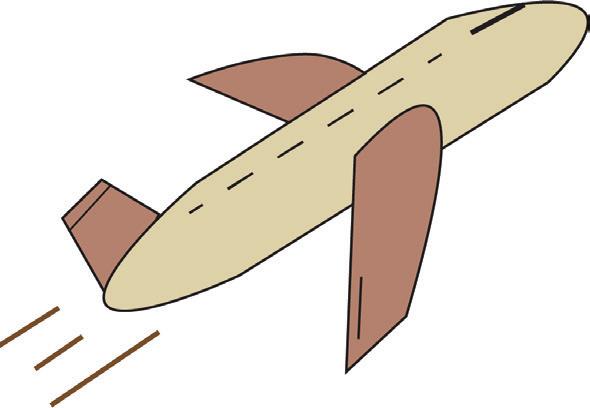


e rst few days of summer are lled with long hours of sleep and laziness. is free time can give people the opportunity to explore new hobbies and activities that they would not otherwise have time for.
“Explore something you think you might be interested in, whether that’s community service … or even teaching yourself something,” college counselor Christine Grover said. “It’s a good time to explore your interests.”
Sports:















According to Tutornerds, playing sports especially in the summer helps with socialization, teamwork, nutrition, self-esteem and condence. Freshman omas Bonos has a passion for soccer and spends most of his summer practicing and honing his skills.
During the summer, he practices with his club, Orlando City, twice each day, extending his practice time to 10 hours or more a week. One tradeo of this lifestyle is that he is incredibly busy.
Since he plays in MLS Next, a feeder system into the pro league, he knows that he must have the right mindset in order
to succeed.
“If I’m unmotivated, I’ll still try to stay disciplined and just continue to keep playing, continue to keep working and just keep getting better at what I do,” Bonos said.
While playing sports during the summer has huge bene ts such as becoming healthier, this commitment might not be for everyone because of the amount of time one must put in.
“My social life over the summer is pretty nonexistent,” Bonos said. “I will hang out with friends or [my family] but otherwise, [summer] is not social.”
Traveling:
According to travel guide Vacationer, 93 million Americans travel at least once during the summer. Eighth grader Reed McMillan takes
at least ve trips over the summer, traveling anywhere from Chicago to Europe. He usually stays in each location for a few weeks, giving him a chance to embrace the local cultures. He believes that traveling can provide an experience that other activities cannot.
“Traveling helps me learn new things,” McMillan said. “You get to see some of the best things in the world and it helps me bond with my family.”
His favorite experiences have been visiting Heddon, Gordon Ramsay’s restaurant in London, and watching “ e Mouse Trap,” a murder mystery play.
McMillan believes that summer is a time to enjoy and live in the moment, rather than overburden oneself with summer courses and sports.
“Summer is meant to be a break,” McMillan said. “It eases you up before you head into the fall and go to school.”
Grover agrees that taking time o during the summer is both mentally and physically healthy.
“I’ve had students that over program themselves that have just tried to do everything… and they hit that wall where they just can’t do it anymore or it’s stressful,” Grover said. “I don’t think it’s good for your mental health and therefore your physical health to be under stress.”
Summer Courses:
According to Forbes, children lose up to 40% of the academic gains they have made over the school year while on summer break. To combine these losses, or even sometimes to get ahead in coursework, some students participate in academic classes over the summer.
Virtual School so he could spend the school year taking more advanced classes.
“If I hadn’t taken geometry over the summer then I wouldn’t have been able to take all of the math courses that Trinity o ers,” Anand said.
Geometry teacher Michael Hill, who teaches this course over the summer at Trinity, explains that the pace of his summer course is not meant for every student, as it can be very challenging to complete a new chapter each day.
“I’ve had kids who are OK students … but they struggle with the pace,” Hill said. “I could eat an entire pizza but if you tell me to do it in 40 minutes, that’s a whole di erent story… getting it done that quickly is tough.”
However, unlike Hill’s class, the course Anand took was self-paced, which he believed made it more doable.
“I was able to choose when to work and when not to work,” Anand said. “It allowed me to have a pretty relaxed summer, even with taking it, and honestly, my summer would have been pretty boring if I didn’t take it.”
is year, Anand will be taking Personal Fitness over the summer to create more space in his schedule as a freshman.
“ ere are several electives that I want to be able to take next year, and taking personal tness during the main school year will take up a whole semester,” Anand said. “So having the opportunity to take it over the summer and clear up a spot in my schedule during the school year is a great opportunity.”
Despite the di erent activities that students do over the summer, the general consensus is that every student spends their summer productively no matter what activity one chooses to take part in.
over need
Last summer, eighth grader Ashwin Anand took geometry over the summer with Florida
“I think the biggest thing that people need to know is that they need to do what’s comfortable for them,” Anand said. “You shouldn’t take a summer course because your parents want to … you should take it because you feel that you need to and you want to.”
May 2O23 Lifestyles 1O
NEW-ERA ESPORTS







A generational wave of esports revolutionizes the world of gaming and education
Article by Gustavo Membreno and Nikhil Daniel Graphic by Maxima de la Fuente
As the world of gaming continues to evolve at an unprecedented pace, a new form of entertainment has taken the world by storm: electronic sports (esports). Esports are a competitive form of video gaming that has become a cultural phenomenon in recent years. From high school esports teams to tournaments with multimillion-dollar prize pools, the post-pandemic esports revolution shows no signs of slowing down.
“ e gaming industry is tipped to maintain its recent rapid growth and could be worth $321 billion by 2026,” the World Economic Forum wrote in August. “Millions of new players splashed out on games and consoles during COVID-19 lockdowns.”


























Trinity Prep’s Chief Technology O and esports club sponsor Alex Podchaski said the number of students playing video games rose dramatically during the pandemic. With few options for stress relief and socializing, gaming appeared to be a last resort at rst but soon became an obvious choice.
“[Gaming] is sort of part of the fabric of our culture,” Podchaski said. “ very few opportunities to express [gaming] ofcially in a school environment so one of the things that I wanted to focus on speci the concept of academic or scholastic esports.”
e growth of esports has allowed high school students to pursue a passion for gaming in a competitive, organized environment.
In 2018, a major milestone was achieved when the National Federation of State High School Associations recognized esports as an o cial sport. Since then, more than 8,600 high schools have created esports teams.
is explosive growth has resulted in the expansion of esports scholarships and careers.
is trend has been particularly evident at


some of the largest and most prestigious universities in the country, including University of Texas at Austin, Ohio State and many UC universities. ese schools have allotted funding resources to give students the opportunity to compete and explore a career in gaming.
“When you have colleges building stadiums and giving scholarships for esports, maybe it’s time to start taking it seriously,” social science teacher Brandon Burmeister said. “It is a thing that has a large audience, marketability and is culturally impactful.”
An increase in student interest, real-life opportunities and the

year. e league operates on a statewide level with weekly scheduled games being played between di erent schools.

“ e goal is [to create] an opportunity to get to participate in something that’s a little bit bigger than just playing against your friends and an opportunity to meet people and learn,” Podchaski said.
In the past six months alone, the team has grown by 167%, from six to 16 students. e team is currently comprised of only middle schoolers, but Podchaski hopes to expand into high school soon. is year was a starting point for the team, who hopes to make sigcant improvements to both its roster and competitive abilities in the future. is past fall focused on middle school [and] the rst high school rocket leagues are taking place this spring,” Podchaski said. “We’ll have all summer to recruit people to play games for a full high school and middle school suite for the fall.”

Trinity esports, like any other sport, gives participating students pride and improves cooperative skills.
“Whether you’re throwing a ball or smashing a keyboard, it’s still competitive,” Burmeister said. “[It] kind of gets your blood pumping, gets the endorphins running and it’s fun.”
ability to garner scholarships have prompted Trinity to follow suit this school year with the creation of its own esports team, headed by rst students to sign up for the new club was sixth grader Max Agnew, who was excited and eager to get started.
“[It] makes it feel like school is not just sitting and learning,” Agnew said. “It feels fun and makes school much better.”
e implementation of esports represents a signi cant step forward, as in the past, Trinity has focused on more traditional sports and extracurriculars such as football or debate. e team currently competes in the Sunshine State Esports League in Rocket League and hopes to expand into multiple games by the end of next
As the world delves into a technological revolution, skills and abilities developed in esports have real-world applications. Esports introduces pathways to prepare students for the future and allows for a new avenue to success.
“[Esports] gives you an opportunity from within the school environment to say, ‘I may not be the tallest person, the fastest person or the most athletically gifted person, but you know what, I have really good re exes, I can follow the games and I can represent my school,’” Podchaski said. “ at is something that I would hope that everybody should have an opportunity to do.”
May 2O23 Lifestyles 11
ni “
Podchaski. Among the










May 2O23 Focus
The positives and negatives of reinforcement
 Article by Laziza Talipova Graphic by Andrew Edwards
Article by Laziza Talipova Graphic by Andrew Edwards




In a world where positive reinforcement is often seen as a necessary tool for boosting self-esteem, comments like “You’re so smart” may sound like a pleasant compliment, but can carry a negative connotation.

Praise is a powerful tool in education. It can motivate students, boost their self-esteem and create a positive learning environment. However, excessive or insincere praise can have a negative impact on students, leading to a fixed mindset, lowered

resilience and a lack of motivation.

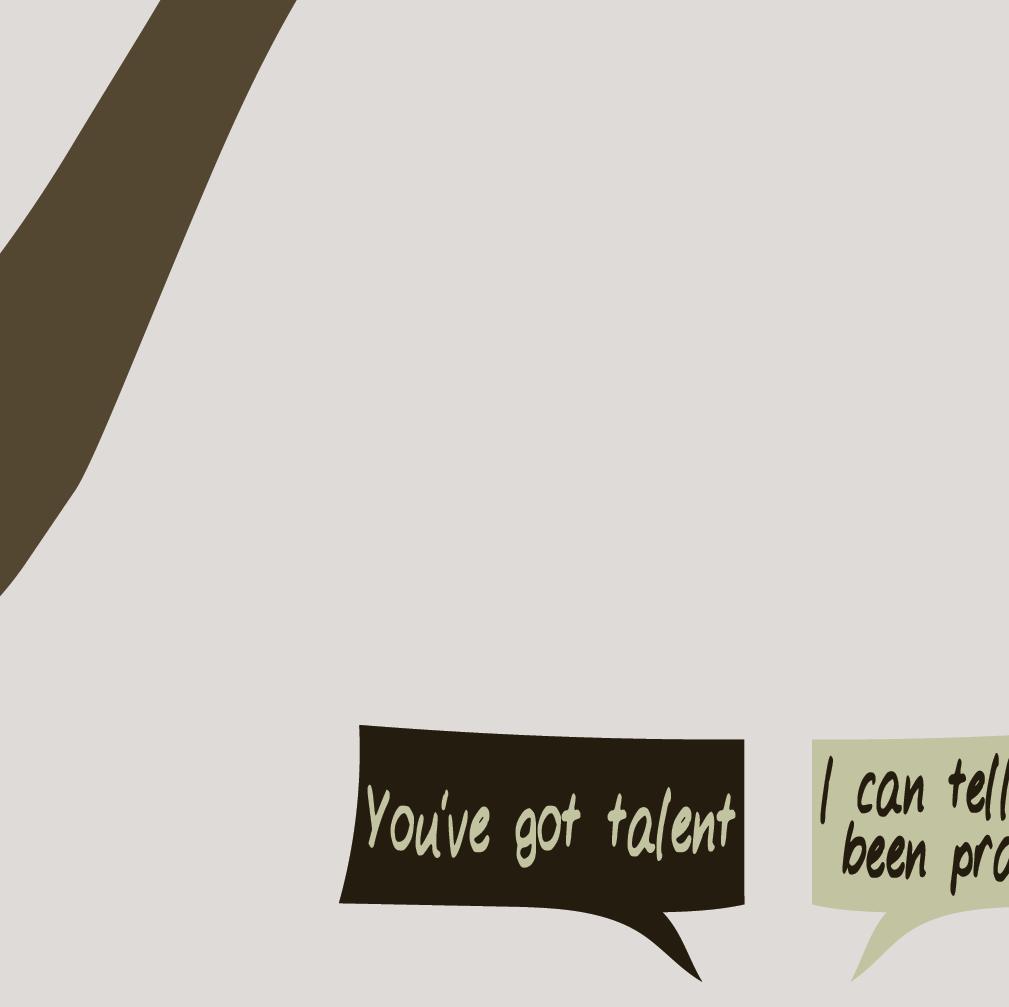
According to studies published in the Society for Research in Child Development, when students are praised for their intelligence or natural abilities, they may begin to see their success as innate rather than the result of hard work and dedication. is can create a fixed mindset, where students believe that their abilities are limited and cannot be improved. Students with a fixed mindset are less resilient and less motivated to learn, as they may believe that their efforts will not make a difference. Health and Wellness teacher Dee Starling believes that praise is given when it’s deserved, and the type of praise is important.

“I believe you get praised when praise is deserved,” Starling said. “I think too much praise gives kids a sense of false accomplishment and maybe makes them complacent, because they feel like they’ve already reached their goals…they’re getting so much credit for something they didn’t really deserve.” Especially for parents, giving praise can become difficult. Parents unconsciously give unnecessary praise in the given moment.
“As a parent, I have to separate myself from being a parent and knowing the game and having a coach mentality,” Starling said.
Praise can also be an effective tool for behavior management. By praising students for positive behavior, teachers and parents can reinforce good habits and encourage students to continue making good choices.

“Focusing on the positive can help a person’s mental state of mind stay focused on what they’re doing well, and then fix what they’re
not doing so well,” Starling said. “Rather than the negative reinforcement that tells them otherwise.”
Insincere praise can also have a negative impact on students. When students are praised for tasks that are not challenging or for tasks they did not put in much effort into, they may begin to question the sincerity of the praise.
However, this does not mean that all praise is bad. Praising a student for legitimate effort and success, rather than easy accomplishments or innate traits, can increase their confidence, build their self-esteem and encourage them to continue to work hard. It can also create a positive learning environment where students feel valued, respected and appreciated.
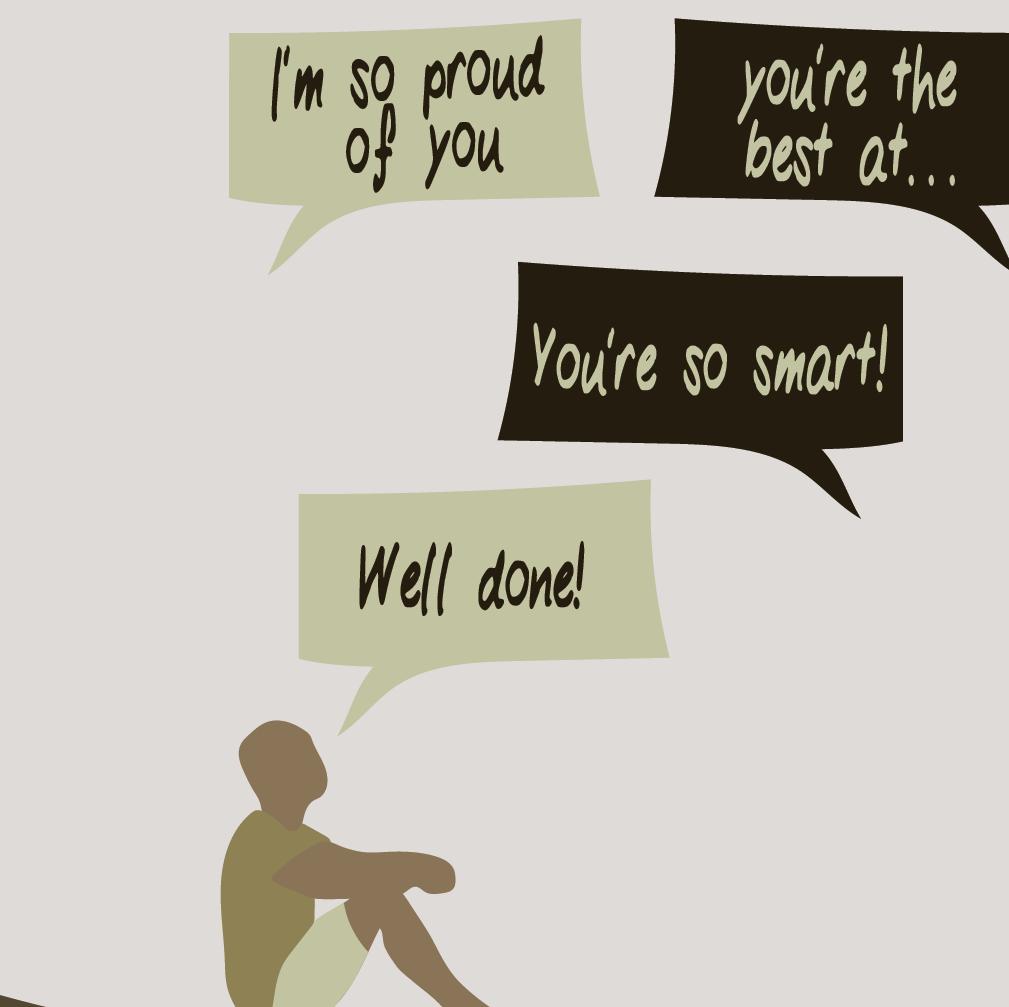
“I think that you get that sense of accomplishment and praise if you’ve put in the time and you put in the work, and you can really reward yourself,” Starling said.
One study conducted by Stanford University found that children who received praise for their hard work were more likely to have a growth mindset, believing that their abilities can be developed through effort and dedication. In addition, students with a growth mindset are more resilient, more likely to take on challenges and more motivated to learn.
As for student athletes like senior Lauren elwell, praise can also create a positive team culture. When athletes are encouraged to support and uplift their teammates, it fosters a sense of friendship and teamwork that can translate into better performance on the field or court.
“Getting praised in something you work hard in, and working as a team is the ultimate success to succeed together,” elwell said.
Starling contends that while praise might aid in self-improvement, it is ultimately up to the individual to do so and not to rely on others.
“I think self-improvement has to be self -driven,” Starling said. “Coaches can only do so much.”
May 2O23 Focus
Article by Fay Zhao
Graphic by Andrew Edwards


Students bustle around with tests to make up, projects to get done, essays to write and practices to go to, not to mention the increasing pile of homework neglected at home. Amidst the chaos, people often overlook the



and you take that minute, and realize that there’s some really good things going on, even when everything’s not really good,” health and wellness teacher Amanda Dean said. Having gratitude and acknowledging the good things in life can lead to a trickle-down ect which creates a mindset that leads to growth and improvement.
“Most people don’t, by default, think about things gratefully, people tend to focus on the negative,” UCF psychology professor Je rey Bedwell said. “We know that if people intentionally choose to think about gratefulness it improves their mood and wellbeing overall.”


























Gratitude has to be practiced as it is not human nature to always be grateful or look at the positive. According to the National Science Foundation, 80% of thoughts are negative. Oftentimes things like entitlement and expectations get in the way of gratitude.

“I think where people are,

‘I worked hard for this, it should be mine,’” Dean said. “ at’s a detriment to gratitude. ‘Because of my hard work, and because of whatever my natural gifts or talents might be, I was able to achieve is a very di erent thing than I deserve.’”
But when people are able to shift their mindset, gratitude can not just change a person’s well-being and mood but can also shift the outlook of life and how a person approaches and reacts to di erent situations.

“You come at everything with an apprecia-









tion for what you have, rather than an expectation of what you should have, and I think that a big part of what gratitude is, is just appreciating it rather than expecting it,” Dean said.
Instead of taking everything for granted, having gratitude encourages people to appreciate the opportunities given and become more optimistic. Based on a study conducted by Madelon L. Peters, Yvo M. C. Meevissen and Marjolein M. Hanssen, an intervention of gratitude with exercise established a stronger positive outlook in life. ese traits change how a person reacts and approaches a task.
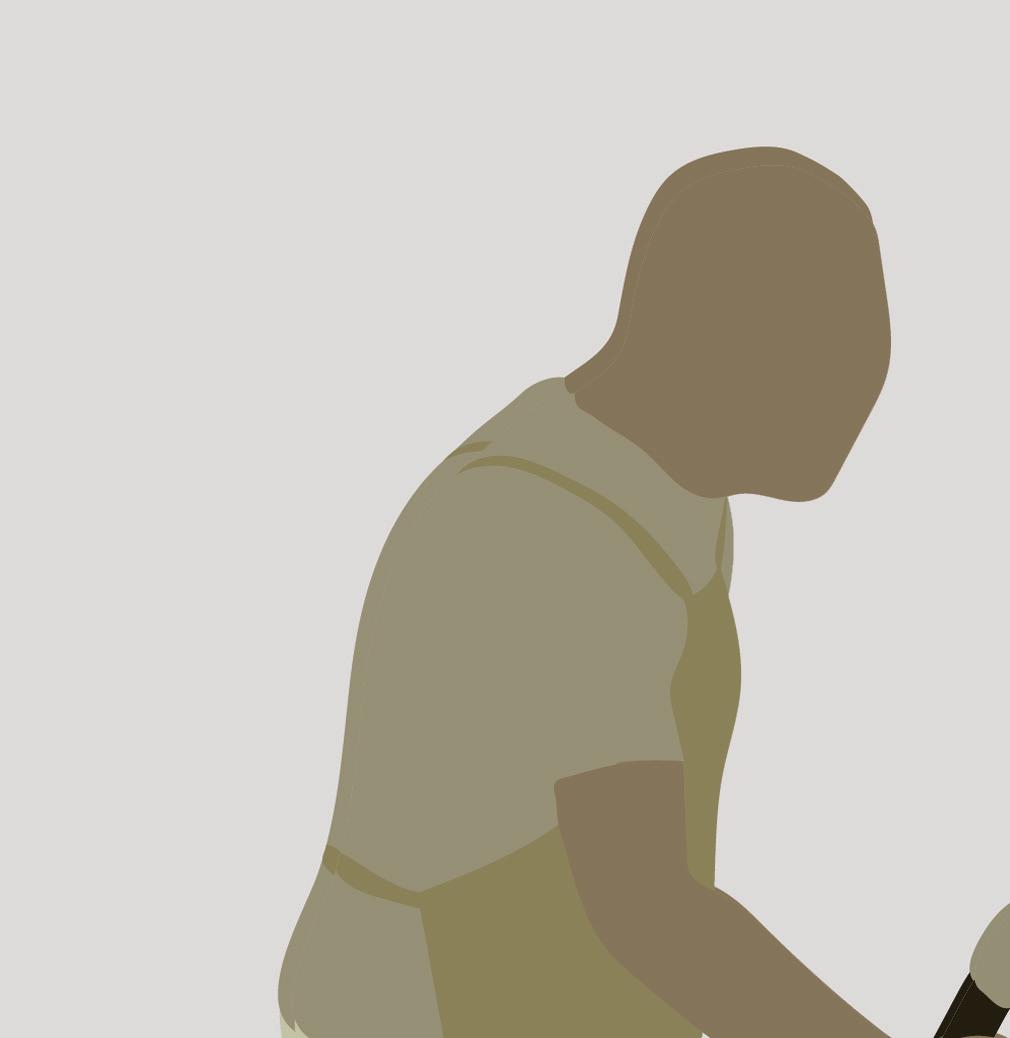


“You can take that little bit of, ‘Here’s this thing that needs to be done, and I can view it as a burden, or I can view it as an opportunity,’ and when we can view things as opportunities… e little bit of a mind shift can really help to settle us,” Dean said.
With the mind shift of gratitude, people are able to change their perspective to nding the positive within sometimes di cult situations.
“A lot of times we get upset or in a funk, mentally, we take a breath and remember, ‘maybe I have this big arduous task to do, but I have it because of all these opportunities that I’ve been a orded and it’s going to lead hopefully to these good things,” Dean said.
e optimistic approach to life can result in the development of many important qualities for success.
“If you can always get yourself to a point
May 2O23 Focus
How gratitude can lead to growth and success
where you’re coming at a challenge as I’m going keep trying, I’m going keep working, it’s going to be worth it, then that helps us to develop perseverance that helps us to develop resilience that helps con dence,” Dean said.
Gratitude can also a ect a person’s mood in general by reinforcing positive emotions by focusing on the good aspects of life. According to Research.com, a scienti c research website, by exercising gratitude, it has been found that long-term happiness can be enhanced by more than 10%.


“[Gratitude] enhances people’s mood, because it gets them to focus on things that are going well, instead of always worrying or being anxious about things that might go wrong in the future or being stressed about current things that are problematic. [It] sort of helps balance people out to see all the good things and pay attention,” Bedwell said.
Gratitude increases attention as stress and anxiety often times take up a lot of a person’s attention. As gratitude negates those emotions, it leaves more room for people to focus their attention on the task at hand, which will also


bene t them with better performances.
“[Gratitude] lowers those,” Bedwell said. “With more attention [you are] going to improve anything you do that takes thinking or even motor skills, like athletics… [It] relates





family, people that you work with, people that are doing things for you,” Polsinelli said. “It really helps to build a stronger and more benecial, connection with them.”






e other end of gratitude generally makes people feel acknowledged and inspires them to do more.
“You feel appreciated, you want to work harder, you feel appreciated, you want to continue to do better,” Dean said.
Although it is easy to say to be more grateful, achieving a mindset of positivity is hard.
to better success academically, occupationally and socially. ”































Athletes, who use a positive mindset, are able to focus on how to better themselves in their various sports.
“When I’m in a better mood, it helps me to focus more, because I’m not distracted by being angry, being sad, or whatever,” sophomore Nikolas Polsinelli said. “ at generally helps my athletic performance.”
Gratitude can also improve interpersonal relationships. According to Utah State University, expressing gratitude releases oxytocin, also known as “the love hormone,” which can lead to a greater connection between two people.
“Being grateful and recognizing other people in your life of any sort, your friends, your




“I don’t think for a lot of people, our mental health or our mindset is quite as easily controlled as we’d like it to be,” Dean said. “It’s so easy to tell somebody, ‘look on the bright side or just be happy’… Break[ing] through that fog can help… but I don’t think it’s as easy as that all the time.” However there are many ways to become more grateful, such as journaling about good things, sharing gratitude with loved ones or just looking around and simply appreciating the small but signi cant things that make life worth living.
“Sometimes when I’m outside… I nd myself even just walking across campus a couple times, where it’s been a beautiful kind of cooler morning with no humidity and pausing for a second and taking a deep breath and being like, ‘it’s a gorgeous day, we’re really lucky to experience this,’” Dean said.
May 2O23 Focus
-Amanda Dean, Health and Wellness teacher
“We’re so hectic, everything’s so fast, everything’s so busy. Even little kids right now... it doesn’t ever seem to settles down. Sometimes, just taking that moment to be like ‘we’re in a really good spot’ helps to settle all that.”
Opinions
THE BITTER TRUTH ABOUT CHOCOLATE
Article by Amy-Ruth Gyang

 Graphic by Caden Liu
Graphic by Caden Liu

Nurtured deep in the ground, the seed grows, germinating with its roots. After months of intimate care, the plant begins to form a yellow shaped pod. e pod is then opened by the farmers to expose its insides, an opaque white seed. To the companies that process the cocoa bean, this tiny seed is propelling the billion dollar chocolate industry. However, to the cocoa farmers who harvest this plant, this is only the beginning of a continual cycle of poverty.
It is estimated that the two West African countries, Ghana and Ivory Coast, produce an estimated 70% of the world’s cocoa. e chocolate industry provides billions in revenue for many chocolate companies. Yet, the profits that support this industry barely ever reach the root, as according to Business Insider, the average West African cocoa farmer makes less than $1 a day. Centuries later, the impacts of European colonization still persist in their former colonies despite political independence. Chocolate corporations care more for their profits than those who work endlessly to support them, ultimately perpetuating the cycle that leaves Africans voiceless.


e Chocolate Process




Despite cocoa farming’s introduction in West Africa over a century ago, cocoa farmers are still struggling to harvest the plant in a rapidly changing world. e impacts of climate change, infertile soil, and plant disease cause yields of much less cocoa than was originally planted. During the harvesting season, farmers across the region collect the tiny cocoa seeds and send them to major chocolate companies for processing in factories in Europe and North America. is displays a simple trading process, in which each
person involved makes a proportion of the profit, however the farmers make almost nothing.


Over the years, the manufacturers have grown richer while the farmers have grown poorer. Companies such as Nestle and Hershey are part of wealthy foreign markets that dictate the price of cocoa in relation to the demand and supply of chocolate. ey in turn, also set the price at which farmers are paid, yet millions of cocoa farmers live below the poverty line. For the past century, West African countries have been left out of the conversation when it comes to chocolate processing and their efforts are minimized and neglected. Yet, the African farmers are not new to this as this exploitation has been occurring for centuries.
e Bitter Truth
Cocoa was first introduced to Ghana in the late 1800s. It was during this time that Ghana became a British colony, and England began to monopolize the growth of cocoa. Farmers grew the crop that British chocolate companies would then process into chocolate for majority European consumers. is trading exchange was highly manipulated as the bulk of the profit from chocolate came from the end producers rather than the farmers. is allowed for Europe to set a precedent for how much cocoa farmers would be paid and how much profit they would gain in return. is trade relation still exists till today as a research study done by Oxfam in 2012, found that cocoa farmers receive only 3% of the revenue from chocolate production
while retailers receive 43%. To put that into perspective, the average Hershey’s chocolate bar costs 2.75 dollars per unit, which means that 0.0825 dollars will go to farmers while 1.1825 dollars will go to major chocolate companies. Chocolate companies make fourteen times more than the average cocoa farmer.

e Impact
e global chocolate market is expected to grow by 3.7% from 2022 to 2030. Recent trends, however, predict that farmers will be required to grow more cocoa while their salaries remain unchanged. Over the past decades, this has caused farmers to go to extreme lengths to keep up with the expected
16
amount of cocoa and















ing to the U.S. Department of Labor, around 2 million children in Western Africa engage in hazardous labor on cocoa farms. Since many cocoa farms are family run, farmers’ children have to help to increase the profit they will ultimately receive. Over the years,


journalists have uncovered stories of children being trafficked from neighboring countries to work on cocoa farms. Many of the children are between the ages of 12 and 16, but reporters have as 5. is normalized practice, however, leads to a ripple effect as many

hardships that plague regions in Africa. In recent years, many have begun to use the term “African brain drain” to describe the mass migration of West African youth due to lack of economic and educational opportunities. Opportunities to escape the oppression of choicelessness, such as the injustices associated with chocolate manufacture, are prohibited by circumstances like cocoa farming. Major chocolate companies who understand that these strifes exist are therefore not incentivized to ever take measures to increase wages or end child labor, understanding that for many cocoa farmers there is no better alternative.
Our Role
found children as young
children are unable to attend school or are unable to access proper health care while working in dangerous conditions.

e Implications
In 2019, Ghana and the Ivory Coast formed an agreement to streamline e orts to raise the income wages of cocoa farmers. Despite many chocolate companies’ initial agreement to increase wages and end child labor, this process still contin-


ues.
efforts
While issues such as child labor and income inequality require structural changes within the chocolate industry, there are still measures that can be taken by chocolate consumers to help support cocoa farmers. According to the Food and Drug Administration, dark chocolate contains a higher percentage of cocoa than other chocolate types. is would allow farmers to potentially receive higher wages. Major chocolate companies must still be held accountable for their part in enabling the exploitation of African cocoa farmers for their own gain. Until cocoa farmers are seen on the same playing field, the corruption that has existed for the past century will continue to reign superior.

e chocolate industry has continuously exploited Africans to do their bidding, disregarding the pivotal role they have had on the industry for decades.
e chocolate industry, however, paints itself into a larger picture of the economic

Opinions 17
“BOYS WILL BE BOYS”
Article by Amanda Rose DeStefano Graphic by Lia Garibay



e lessons we learn on the playground stick with us for the rest of our lives. Boys learn to run, jump, and play, all while getting out their energy during recess. Young girls, however, learn what it feels like to hit the mulch after being pushed to the ground by their male peers, just for their teachers to defend the boys’ behavior for the sake of “just being boys.”
Male aggressive behavior is passed o as being a biological component of their sex, instead of a learned and taught practice. Chalking up violence to “boys being boys” oversimplies the issue to the detriment of the peers who will deal with the violence in childhood, as well as later in adult life.


e implications of harmful phrases like these don’t just stop at girls. “Boys will be boys” has become a license for boys to treat their peers, male and female, with disrespect and violence. Aggressive behavior like this has become normalized, accepted and expected throughout adolescence and into adulthood.


One particularly painful consequence of these excuses is experienced by young girls. A common phrase told to young girls complaining of the violence they are subjected to by their male classmates is “he just likes you.” e normalization of boys acting out violently has molded the way we respond to girls experiencing it. Instead of accountability and discipline, we teach girls that boys might just not know how to express their romantic feelings, causing them to act out.
“It primes girls to expect that a certain
amount of harassment just comes with the territory. at’s very dangerous. It also primes them to not confront the behavior. It makes them feel as if they have to accept it as the norm. It normalizes it,” author of middle grade novel “Maybe He Just Likes You,” Barbara Dee said.
who approached her while jogging to leave her alone. ese stories don’t exist in isolation. ey are part of a much bigger picture of excusing and accepting violence against women and girls, further encouraging sexism. All violence begins with disrespect. When we teach our young boys that girls are below
“We expect boys to act in a certain way because after all, they’re boys and that’s what they are genetically predisposed to do. at’s not fair to girls, and it’s certainly not fair to boys,” Dee said.
Entitlement seen in young boys in playground or classroom settings is exacerbated into much more severe violence. Dr. Tamara O’Neal was killed in 2018 by her ancé after breaking o an engagement. College student Mollie Tibbets was killed after telling a man
them, they act out in seemingly minor instances. While it seems as though these minute events don’t have much of an impact on girls, when the adults in their lives write it o as simply a symptom of their bully’s gender, they begin to believe it. Girls become more hesitant to speak out, seeing the disrespect they are subjected to as an inevitability. ey view daily instances of sexism as a normality. Internalization of sexist myths as reality is a dangerous game played by adults that will lead us further
May 2O23 Opinions
down the path of sexism.
“We also need to get adults to pick up the signs,” Dee said.
Aside from instances of violence, sexism experienced during childhood has real implications on women into adulthood. For instance, a study published by the Becker Friedman In-

to no e ect, the opposite is true. Classrooms across the world have been permeated by sexism brought from patriarchal norms in society. e Center for Education & Youth reports that this in turn teaches students to accept this treatment as an inevitable reality, part of everyday life. When teachers challenge everyday
Opinions


stitute at the University of Chicago in 2018 found that sexism experienced in childhood a ects the salaries of women later in their life. If a woman is raised in a highly sexist state, they are more likely to carry those beliefs throughout their life, even as they move to di erent states across the country. is devaluation of women is re ected into salary negotiations, promotions and more.
While ending sexism on the playground or in the classroom might seem to have little
sexism, however, it pushes students, parents and sta to do the same.


e way we arrange classrooms and playgrounds, as well as initiate conversations inside them, has a direct impact on what girls internalize. For instance, posters depicting only male U.S. politicians in a classroom led Korean immigrant girls to believe that only men could ll roles like these. Teachers often comment on girls’ neatness, but boys’ physical strength. Children adopt these roles and
attitudes and re ect them on themselves and peers, further perpetuating age-old stereotypes of the docility of girls and the strength of boys. Children develop their gender identity and learn the di erences between male and female around ages 3 to 5 according to Olaiya E. Aina and Petronella A. Cameron in the journal Dimensions of Early Childhood. is makes it especially imperative for teachers, parents, and other adults to focus on resisting stereotypes and sexism in childhood. e e ects of long-term gender bias proliferates the most during adolescence. Stopping bias and stereotyping young is the solution to preventing it later in life.

A study published in 2016 by the Feminist Review found that although there has been significant work done to target boys’ attitudes towards violence against women and girls, an important component of the problem has been missing a solution. Without an emphasis placed on the internalization of societal norms and patriarchal myths, women and girls cannot overcome violence and sexism.

Another uncharted territory in tackling childhood sexism is teaching girls how to e ectively communicate. Dealing with violence and bullying as a child is scary enough without an added component of underlying sexism. It becomes even more dangerous when girls are expecting for their experience to be downplayed and ignored, with little consideration for the fear and humiliation they feel.
“A lot of girls...really just don’t know how to advocate for themselves. ey don’t know how to get adults to listen because they don’t know how to express how they feel about the behavior. It’s very confusing. It’s threatening,” Dee said.
May 2O23
The way we treat young girls conditions them to accept disrespect later in life
Opinions

THE PR BLEM


















 Article by Reese Taylor
Graphic by Andrew Edwards
Article by Reese Taylor
Graphic by Andrew Edwards
In February of this year, YouTuber and philanthropist Jimmy Donaldson, known as “Mr. Beast,” paid for 1,000 people to undergo a cataract eye surgery. e surgery is life changing. One highschool senior who received the surgery in his video broke down into tears after regaining his eyesight saying, “I didn’t even think this was real…I’m waiting to wake up.”



However, Donaldson’s donation of surgery sparked controversy as the surgeries were donated in order to lm an ad-supported YouTube video. Conversations began examining the role of multi-million and billion dollar philanthropists in society. Many believed it was dystopian that a surgery so simple, taking only 10 minutes to perform, could only be accessed by people in need when a YouTuber thinks it will make monetizable content for a video. Others took a consequentialist outlook arguing that Donaldson undeniably bene tted the lives of other people which makes what he did good, regardless of his motivations. As the internet provides a new platform for individuals and corporations to publicize their philanthropy, we must continue to question the morality of philanthropy and the role it has in our society.
SPECTACLE & SAVIORISM
e dilemma withgww philanthropy is illustrated with Mr. Beast. Philanthropists are constantly faced with the same dilemma: Fight for systematic change that is often laborious and not as fame-inspiring or create momentary good that creates public perception of yourself as a hero?
Donaldson has built a brand o of the second option. From the eye surgery donation to saving orphanages, Donaldson’s philanthropy drives spectacle across the internet. In addition, it is notable that quick dona-





tions and building wells do little in the long run to help communities, often doing more harm than good. For example e Knowledge at Wharton detailed the harmful consequences of the company Tom’s Shoes’s “one-to-one” promotion. In which, the company pledged to give away one shoe for every shoe purchased. While harmless in thought the promotion had devastating e ects on the communities they donated to. e donated shoes outcompeted local shoemakers and “failed to have any impact on the root causes of poverty for the recipients.” is caused Tom’s Shoes to examine their attempt at philanthropy, repealing the program in 2018. What the Tom’s Shoes event exempli ed is how when philanthropists have motivations other than purely creating a net good for the communities they a ect, they have more incentive to create ashy or pro table economic choices instead of ones that are truly bene cial.
BECOMING UNDEMOCRATIC






While it is easy to examine philanthropic work that falls into the second category and believe that, at the very least, there are those that bene t from these motivations, what this neglects is the actual needs of the general population.



We often forget that philanthropists and largescale foundations like e Bill & Melinda Gates Foundation are mostly unaccountable for the needs of the public. While the public can attempt to sway the direction of donations by advocating for certain issues and dissuading attention from others, the nal decision is completely out of our hands.

British journalist Paul Vallely concurred saying, “Foundations are unaccountable, both


politically and in terms of the disciplines of the market…In this sense they are profoundly anti-democratic.”















e repercussions of this fact were explained through charter schools by political philosopher Emma Saunders-Hastings. She noted that charter school funders rarely send their own children to charter schools. Often, sending their students to schools that employ completely di erent instructional practices. In this way, funders determine teaching methodology that they deem t for other students, precluding their own.
Essentially, because of their wealth and accessibility, philanthropists get to dictate what they deem valuable or invaluable to society and excise those beliefs onto other people.

FINAL DEFENSE


















Another problem with philanthropy is that it is treated as the solution to social inequality, when in reality it should be the last resort. e existence of philanthropy is often used to excuse the need for policy changes that might help solve issues such as extreme poverty and homelessness. However, it becomes clear that it is hardly a solution to the problem. Instead, it sometimes helps perpetuate it.
Je rey Bezos donated 1.5 billion euros to the “Bezos Day One Fund” which was founded to end homelessness. However, Amazon plays an



















$500 more per employee local homelessness e council compromised to lower the amount to $275, Amazon pressured the council into dropping the bill completely.

May 2O23
“Foundations are unaccountable, both politically and in terms of the disciplines of the market... in this sense they are profoundly anti-democratic”
- Paul Valley, British Journalist
OF PHILANTHROPY


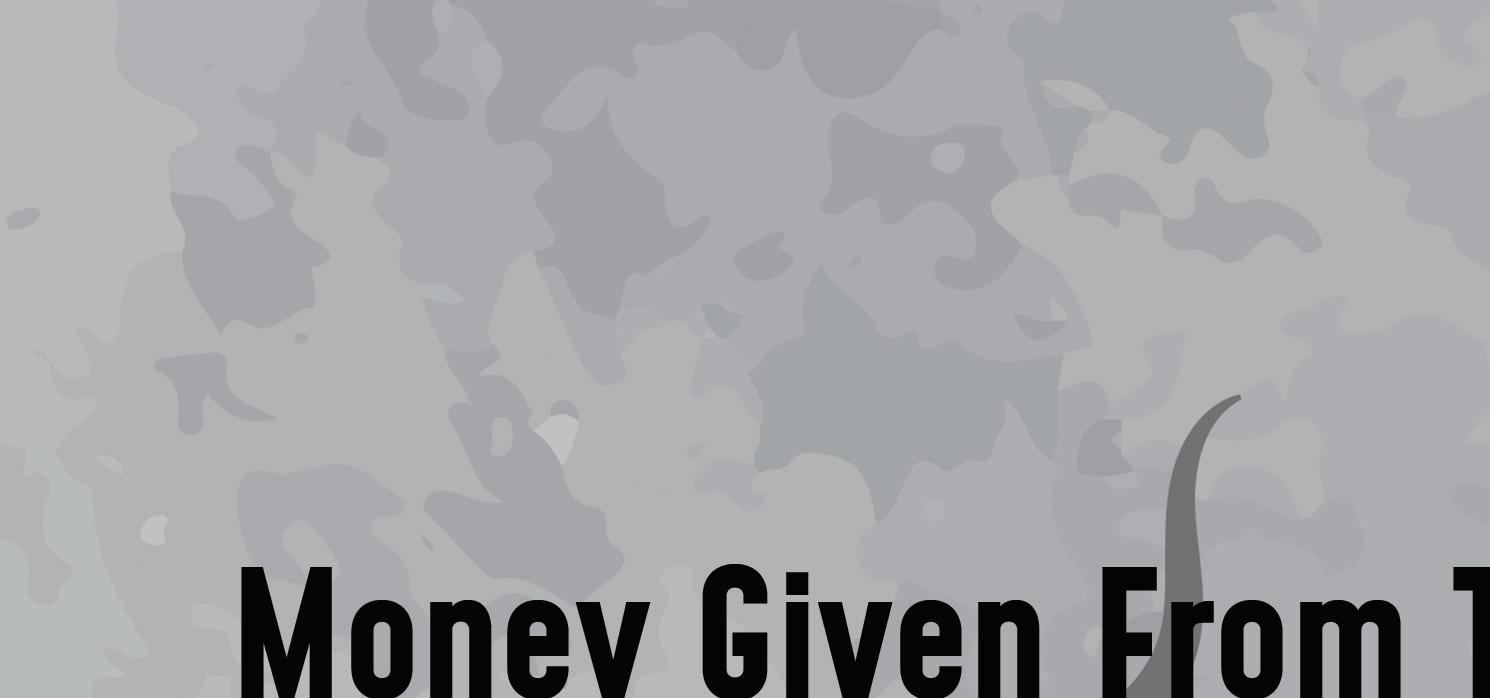
e ever-daunting question then becomes: “what role can we play in philanthropy?”







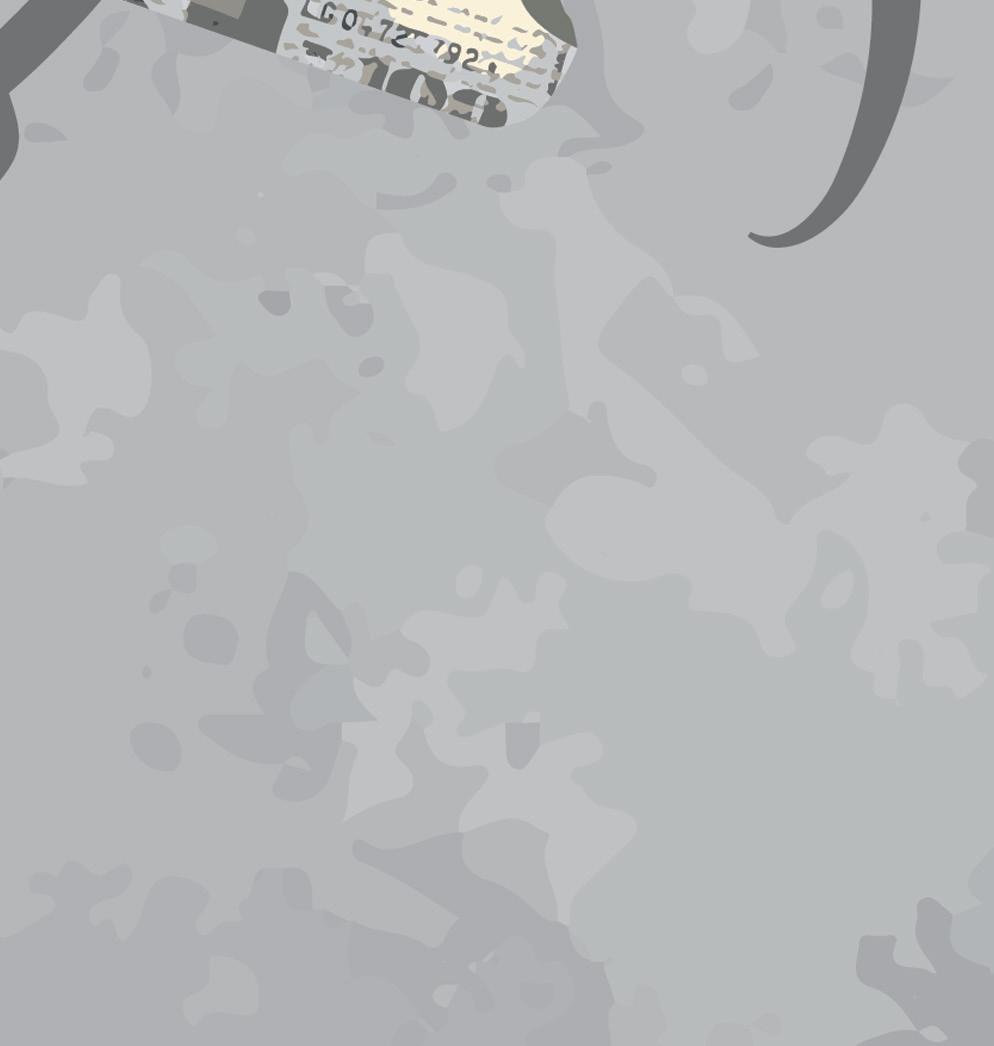







nal say in where philanthropists ultimately decide to spend their money, we can bring attention to the causes we care about in hopes they fol-





A large portion of Mr. Beast’s fortune is made monetizing the attention his philanthropic endeavors receive. By continuing to platform creators and causes that we care about we can provide motivation for philanthropists to support causes that they believe will garner them more public support.
In addition, we can examine our own relationship with philanthropy. Saunders-Hastings said that it is not only millionaires and billionaires who are capable of feeding into the toxic power imbalance of philanthropy. She noted that even when smaller donations are met with thank you notes, plaques in public spaces, and other commemorative pieces they
ere is no “right” way to be a philanthronancial/economic relationship that is inherently unequal. Philanthropy is not a concept that should or should not exist or a relationship that needs to be xed.” However, we need to acknowledge the problems inherent to it and not rely on it as a x systematic issues. While the “ideal” philanthropist may be authentic in altruism or x larger systematic problems, it does not negate that we are leaving the livelihoods of potentially millions of people to the whims
Philanthropy has the power to shape all of our lives. However, it is a social phenomenon that should not be devoid of scrutiny. By understanding how philanthropy can shape the society we inhabit, we can forge a relationship
May 2O23 Opinions
SPELLING BEES SPELL SUCCESS
Article by Sammy Lou Graphic by Austin Yuan
Ever since ESPN began broadcasting the National Spelling Bee in 1994, people around the world have been able to witness this challenging competition. Competing in the spelling bee is no easy task, as words can be pulled from any of the 476,000 entries currently in Merriam-Webster’s Unabridged Dictionary.
Have you ever heard of the word “chatoyance”? Most people would have trouble pronouncing it, let alone spelling it, but this is the type of word that National Spelling Bee competitors can spell with ease.

According to the Academy of Accelerated Learning, competing in spelling bees can help contestants develop their public speaking skills, as well as their self-con dence when performing under pressure on stage. It also enhances their vocabulary, as several words used in the competition are very advanced. An advanced vocabulary comes with many bene ts, including being more persuasive and having better communication skills.
For these reasons, many schools ranging from elementary to middle schools organize spelling bees. While Trinity used to o er a spelling bee program, currently that is not the case. According to Head of Middle School Jason Dowdy, the spelling bee was discontinued because of waning student interest. Nevertheless, bringing back the spelling bee would be bene cial to students. While there was not as much interest in the past, Trinity should bring it back and encourage students to participate.
Open to sixth and eighth graders, the spelling bee is a competition that tests each students’ comprehension and study skills. English teacher Erica Keckley, who helps run the spelling bee at Park Maitland, believes that loving the English language can be all it takes to be a good speller.
“I think the ones who read a lot have a natural a nity for language and words, and they see the value of words,” Keckley

said. “ at certainly lends itself to wanting to know everything about words. I think that the strongest English students are going to be the strongest spellers.”
In a world of autocorrect, some might ask why spelling skills are important. Interestingly, according to PCMag, 61% of people judge those who often misspell words. In fact, some companies will automatically discard a resume if they catch a spelling mistake on it. So for the 79% of the population who rely on autocorrect to x their misspellings, it might be smart to brush up on spelling skills, since autocorrect is not always foolproof.
“I think in today’s world, we don’t value correct spelling,” Keckley said. “We rely so heavily on spell check. Sometimes, we get lazy when we rely too heavily on spell check, meaning we don’t always catch mistakes that the computer might make. I think that it does tie into phonics as well, and your ability to read words easily and sound out words that you’re not familiar with. So I feel like spelling is still an integral, necessary part of language arts.”
Some students might be scared at the thought of putting their spelling skills to the test on a stage in front of a lot of people as it
can be nerve-racking. In a high-pressure situation such as a spelling bee, just knowing the words is not always enough. An article written by Forbes reports on a student being eliminated after misspelling the word “glands” simply due to nerves.
On the other hand, spelling bees actually can help with public speaking skills. According to Study International, a spelling bee helps participants gain con dence to speak in public and accept mistakes by exposing students to these situations at a young age. Being up on the stage forces the participants to come up with ways to overcome stage fright, whether it be by taking deep breaths or focusing on the competition to take their mind o the crowd.
One student who enjoyed participating in spelling bees is eighth grader Luke Kang, who won the Polk County Spelling Bee in his sixth grade year at Park Maitland. Kang believes there are many bene ts to competing in the spelling bee, and he recalled the moment when he won.
“I think it’s a fun competition,” Kang said. “When I heard my name called, I knew my studying paid o . You get to learn new words and it’s good to prep for it because you increase your vocabulary.”
If you were to ask a random person on the street if they can recall their school spelling bee experience, chances are they will remember the word that eliminated them, according to an NBC News article. Although spelling bees are sometimes associated with stage fright and intimidating words, these issues can be overcome and many bene ts come with competing. For these reasons, we should reconsider bringing back the spelling bee for middle students, as it would open up an opportunity for students to enrich their vocabulary while creating memories that can last a lifetime.
May 2O23 Opinions 22
After studying for math tests, writing essays and spending Saturdays taking the SAT, a high school student’s hard work all culminates in their college acceptances. A decision so important to them that the one thing they must do is set up a camera and record.
As college admissions have become more selective, it is treated like a game where you collect the most points by getting good grades, joining the most clubs and getting the highest SAT score. is leads people to want to brag when a college admission brings success. ey cannally show people that all their hard work has paid o e trend of college admissions videos has spread across social media with many videos accumulating millions of views. An applicant will record their reaction to opening up their decision letters to highly ranked schools and post the results. e problem with these videos is that they are not just for the applicant, but they are shared to the rest of the internet.
“I just have been waiting,” said senior Trevor Buettgen, who made a college admissions video. “Honestly, the one thing I was excited for in the college application process was to make all those videos when I was done with it.”
A college admissions video is usually made by super strong applicants who get accepted into top schools. While they deserve praise for their hard work, a college admissions video is not the way to earn it. e videos hurt the people watching them; someone who did not get into top schools is made to feel less than. ey
LIGHTS, CAMERA, ACCEPTED
How College Admissions Videos Hurt Students
get to watch someone else live out their dream.
“It de nitely hurts some people who just got hurt by the college admission system, and they didn’t get in anywhere,” Buettgen said. “It can be kind of hurtful to see all of these people’s successes on your social media with hundreds of thousands of likes.”
Also, it hurts the younger students watching them. e younger students who are exposed to a lot of these videos are made to feel like everyone is getting into these colleges and that they must apply to these schools too when it might not be the best option for them.
“I think it also further makes it a big deal,” Buettgen said. “It’s not just your parents and your school pushing. It’s also your environment of kids around you on social media pushing for you to go to a good college, so I think it kind of reinforces the stress of the college admissions process.”
College admissions is a stressful process. According to e Princeton Review’s 2022 College Hopes & Worries Survey, 74% of high schoolers report high stress about college applications.
“It’s kind of like a self-worth problem when you feel like you’re only a test score and your GPA and nothing more than that, and it’s all these small little things that barely matter,” Buettgen said. “But they’re everything to you because you need to get into a good college.”
A college admissions video makes college
admissions even more competitive and stressful than before. All of a student’s hard work in and out of the classroom for all four years culminates in one decision: accepted, rejected or waitlisted. All their hard work is reduced to three words. A lot of pressure is put onto these words; after all, their future is dependent on it. However, now a student does not just see these words. Instead, they see people all over their social media getting into the college they have been dreaming of for years.
College admissions videos only magnify the stress of college admissions. While students want to share their successes, there are more e ective ways to do that. For example, when you decide where you are going to college, you can announce it and share it with people. is way you can still show o your hard work, but people will not have to see exactly what all your decisions were. Also, you can record the videos of opening the decisions, but only keep it for yourself and your family to watch.
College admissions should be a private process not a public one. When posting decisions anywhere, remember that when someone gets into a school that means another person did not.
e lead editorial expresses the opinion of the Trinity Voice editorial sta . Please send comments to voice@trinityprep.org.





“It’s not just your parents and your school pushing. It’s also your environment of kids around you on social media pushing for you to go to a good college.”
May 2O23 Opinions 23
- Trevor Buettgen, Senior
GRANVILLE JUMPS INTO HER FIRST SEASON
Article by Boaz Kim
 Photo by Olivia Kortman
Photo by Olivia Kortman
Pole vaulting was never the rst option for Trinity head coach Raegan Granville. Ever since middle school track, she loved running and did only running events, ranging from the 60 to the 400 meter. is pattern of running continued well into her high school career, but ended in her junior year.
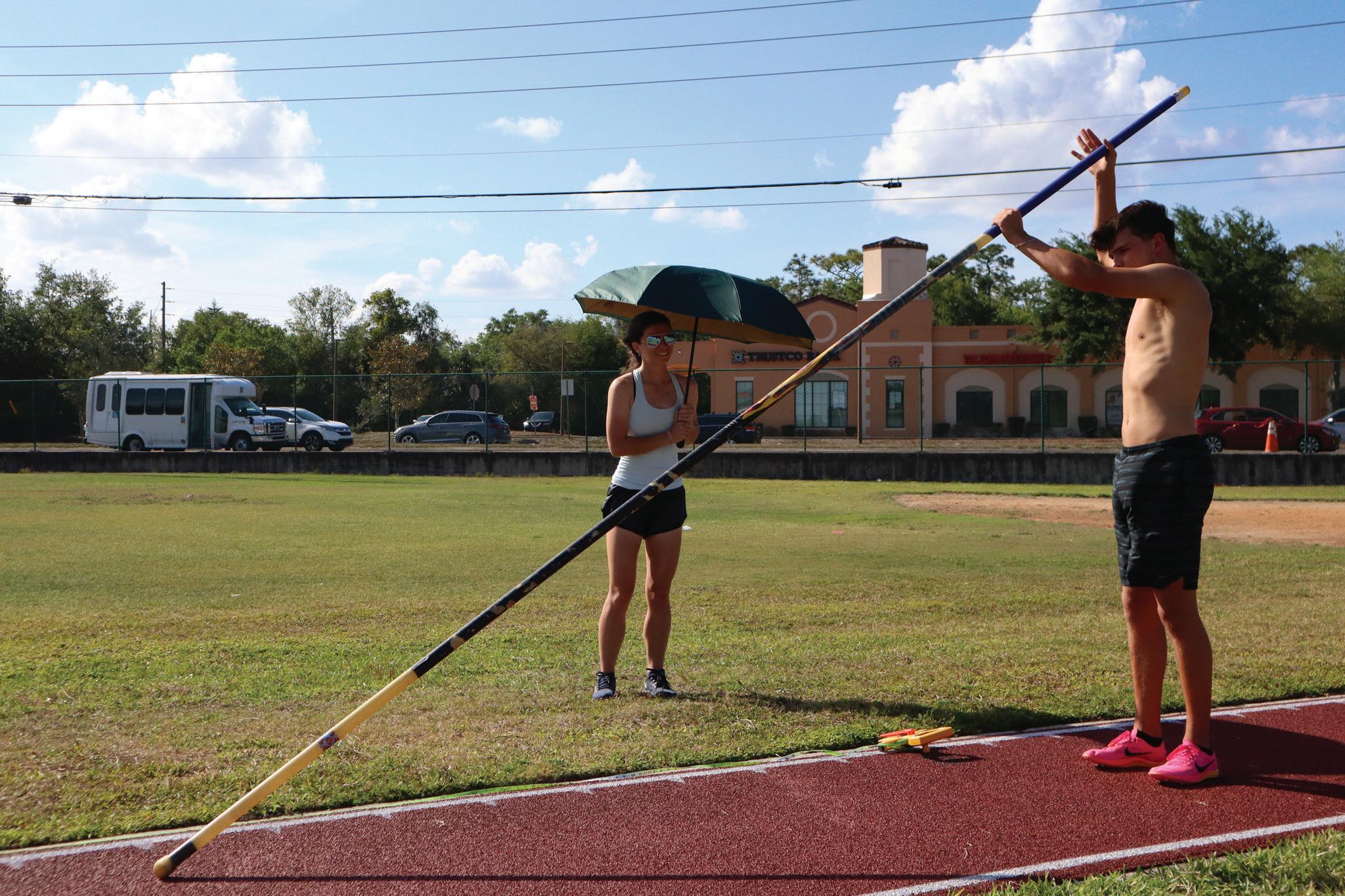
“At the time, I was a cheerleader as well and my friends told me that if you were a cheerleader or a gymnast you could be good at [pole vaulting] and I was like I’ll just pick this up because my friends are doing it,” Granville said. “I never really took it seriously or practiced it a whole lot because I was focused mainly on running.”
Granville said that her goal was to be able to run at the collegiate level. However, it started to become apparent to her that she would have to get on a di erent path to compete in track and eld at the next level.
“I wasn’t progressing as much as I would have liked to with my running and I knew that if I wanted to continue track in college on a scholarship, I needed to change something,” Granville said. “I started to transition and focus more on pole vaulting, and I ended up jumping around two feet higher than I had ever done in just a couple of months.”
Granville was recruited by the University of the Cumberlands, located in Kentucky. She went there for pole vaulting, but later on added back some of her running events to her schedule.
When COVID-19 hit, Granville was a junior in college and was given the opportunity to get another year of eligibility to make up
for the lost season. However, she decided to forego this extra season and instead explore coaching the sport she loved.
“I chose to walk away from my extra year of eligibility, but I felt that it was not really a good closing chapter for my pole vaulting career,” Granville said. “So, I mean one thing led to another, and I decided that I wanted to look into coaching and I ended up here.”
Granville said this is her rst coaching job, but picked up some uno cial coaching expe-
who is fairly fresh out of the sport. She believes that being closer to her athletes’ age allows her to connect with them and use that to coach better.
“I think it is one thing to be a coach and have all of the years of experience and knowledge, but I think it is also another thing when you have been in the athletes’ shoes and it has been a closer time period,” Granville said. “I think that sometimes coaches can forget that it is crucial to not only give them advice that will help them physically, but also mentally in how to deal with things when they are competing.”
Granville seems to be well liked by her athlete, senior Carlos O’Connor, who picked up pole vaulting this year for the rst time, had high praise for Granville.

“I’ve had a really good experience with her,” O’Connor said. “She really helps me out a lot and you can tell that she has had a lot of experience in her career. She is very good at analyzing our jumps and breaking it down for us down to the smallest detail.”
rience back when she was in college. She said that in college, there was not really an o cial pole vaulting coach, so she would go to clubs outside of school to receive coaching. In turn, she would come back and “coach” her pole vaulting peers in college.
“I called myself the ‘vault mom’ because what I would do is I would always help the kids that were underneath me and work with them at the meets and practices,” Granville said.
As a coach, Granville believes that she has a unique advantage as she is a younger coach
For her rst o cial coaching job, Granville was going in blind and said she did not know what to expect. Like any good coach, she said that she just wanted to be there for her athletes.
“I didn’t really know what I was walking into, didn’t know the experience level, the equipment I’d have access to, and whatnot,” Granville said. “But, my main focus was on the kids, you know, helping the seniors have a good last year. My focus was helping them reach their goals and to get a lot of new faces into pole vault, really try to grow it.”
May 2O23 Sports 24
Trinity’s new pole vault coach, Raegan Granville, trains with senior Carlos O’Connor to prepare for his upcoming vault in the Citrus League Championships on March 29th.
UNPRECEDENTED SUCCESS
Boys weightlifting ends its triumphant season
Article by Jack Aaron
Photo courtesy of Amanda Dean
For 21 years, the boy’s weightlifting has never once won the district title. However, this year’s season was di erent, as for the rst time ever, they were able to achieve the rst- place title.
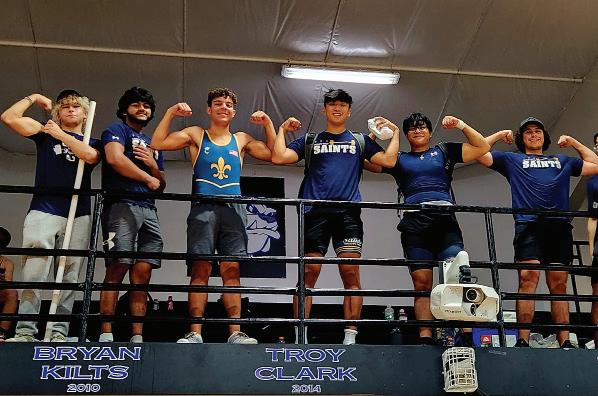
In recents weeks, the boys weightlifting team made unprecedented success after placing rst in districts, having three individuals win regionals and competing in states. is is the rst time in Trinity history that the team has taken this number one spot at the district tournament. In addition, seniors Boaz Kim, Ramy Asfoor and Jackson Salinas quali ed for states, another record for the team.
e captain and four-year member of the team, senior Jackson Salinas attributes the team’s achievements to the overall synergy of the group.
“It’s a team chemistry,” Salinas said. “We are all really close with each other and we all come to practice and we all compete together. People always talk about how [weightlifting] is not really a team sport, but we all come together and we all cheer each other on every week. ”
Jackson is not the only person who is proud of the team’s achievement, as rst-time boys weightlifting coach Amanda Dean commends the team’s dedication and e ort during the season.
“ ese guys, they worked really hard,” Dean said. “ ey set some goals for themselves, and they just went out and trained as hard as they could and follow the protocol and kind of set their mind to try
and do the best they could that day and came out ahead.”
Dean also believes that the team’s technique is a primary factor to their success.
“We spent a lot of time talking about technique and doing the lifts correctly,” Dean said. “And our boys are really, really well trained in good technique. And from there, I think it sets them up nicely to be able to gain the strength to do the lifts really well in these [competitions].”
e team hopes to continue its success, and Salinas pointed to the team’s younger athletes as the successors.
“I think that because of the amount of younger guys that we have on the team that are

really good, I feel like we’re going to be competitive for a really long time,” Salinas said.

All in -all, the boys weightlifting team achieved unprecedented success with a bright future ahead of them. Along with their achievements, Dean is proud of their comradery.
“I love how they kind of mesh and gel around each other,” Dean said. “[To] go to these big meets and see one of our guys who’s getting ready to do a heavy attempt and just seeing all the guys come over to watch and be loud for them. And hype them up and pump them. It’s really fun to kind of be in that atmosphere to see how they interact and how they really, truly support each other.”
May 2O23 Sports 25
e boys varsity weightlifting celebrates its victory at districts on April 1. In addition, three of the boys won in their division at regionals.
START OF A NEW CHAPTER
13 college commits continue their sports at the next level
Soccer Goalie, UCF
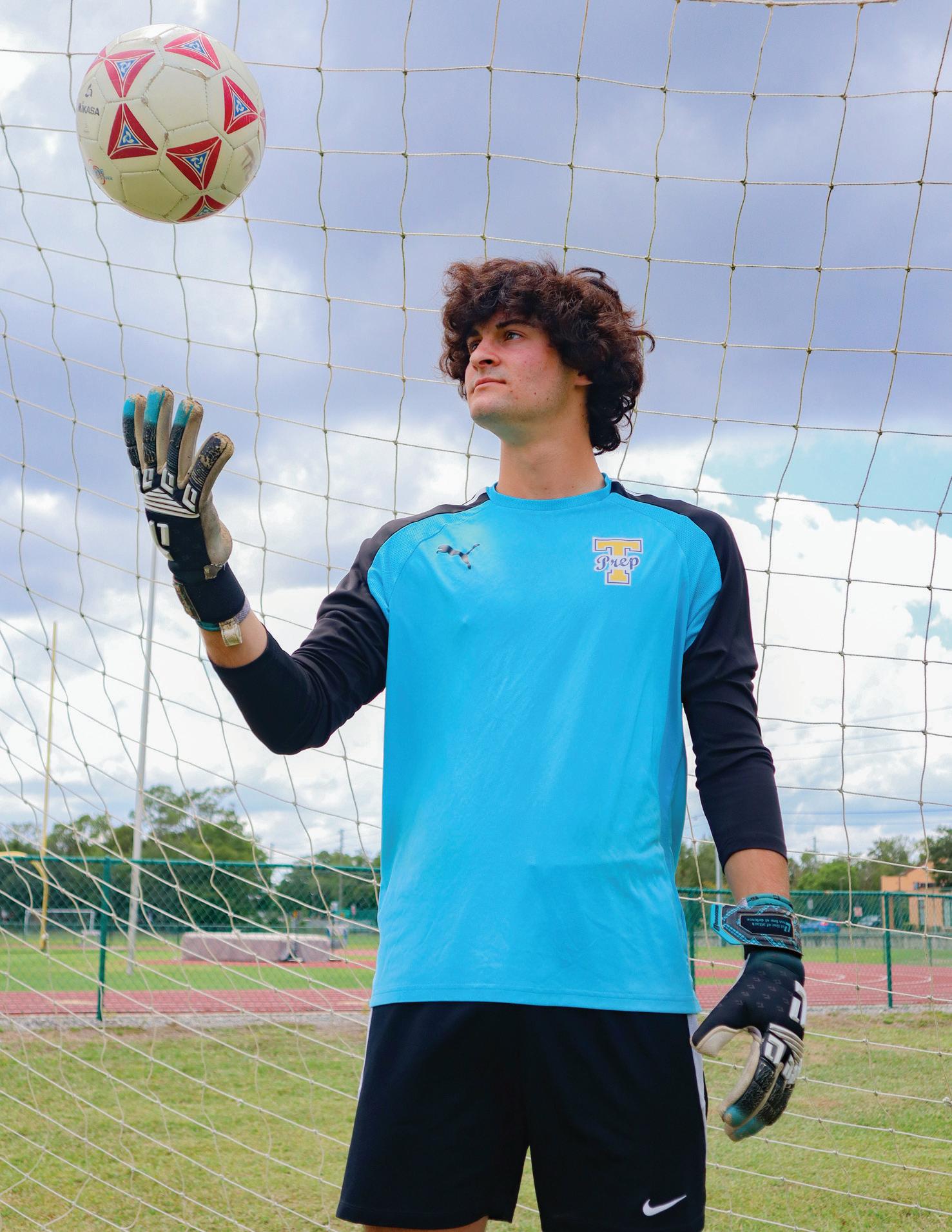
SHANE WRIGHT

“I am looking forward to meeting my new teammates and coaches. I’m ready to continue to expand my understanding and skill in the game that I love.”

“Daytona State will give me the chance to grow as a student and athlete for 2 years, and then help me transfer to a di erent college where I can continue my soccer career. I’m excited to get going.”
“I’m looking forward to the overall environment shift in college. Mainly just being surrounded by other girls who have the same goal in mind as me and who are all putting in the same e ort.”

- Angelina Garganese, Hockey at Utica University


“Playing baseball in college is something I’ve wanted to do for as long as I can remember. Bard was a perfect fit for me and I can’t wait to get started.”

- Charlie Lehr, Baseball at Bard College



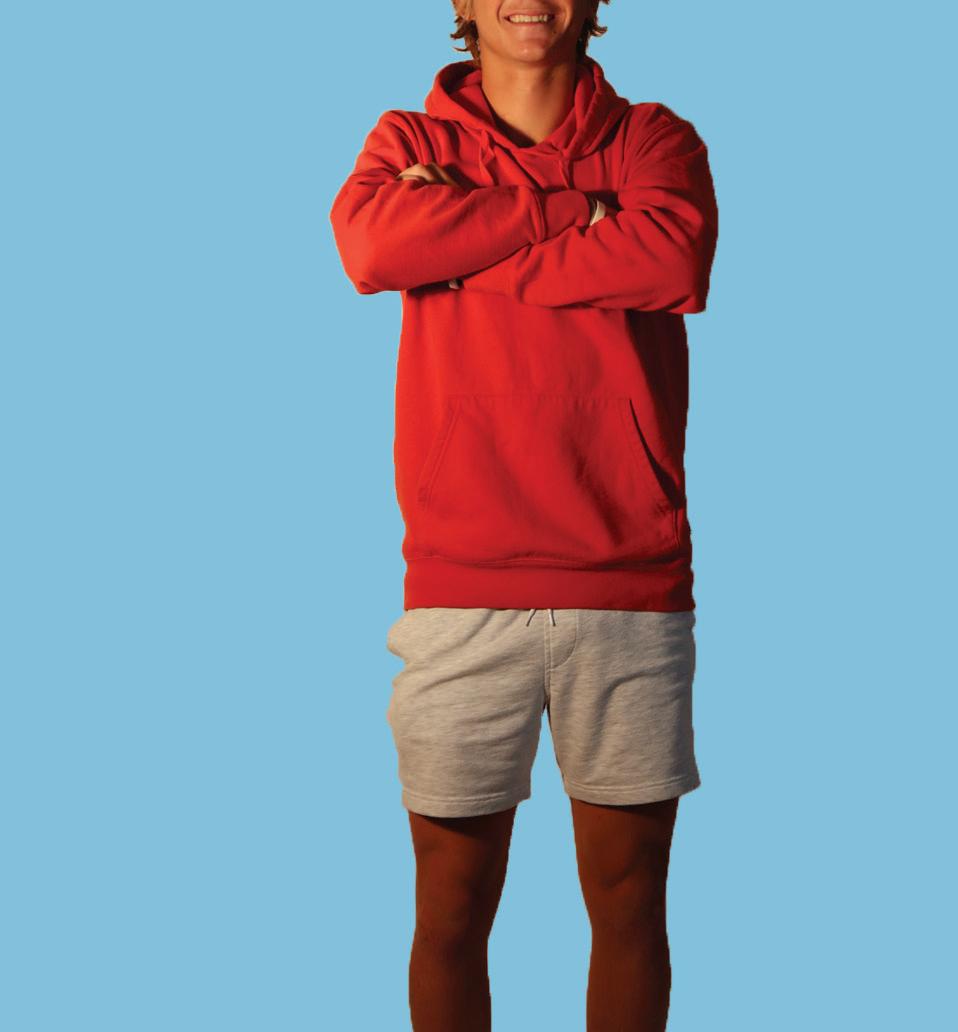






May 2O23 Sports 27
- Mason Dowdy, Soccer at Daytona State College
- Henry Brown, Soccer at Saint Lawrence University
“Trinity has prepared me for my athletic career in college because it provided me with the brotherhood, team chemistry and hard work required to succeed.”
- Koray Tekin, Soccer at Vassar College





















“I’m really excited to be going to WashU already knowing I have a group of people I can rely on and who can push me to become the best I can.”

- Max Balon, Swimming at Washington University in St. Louis




“I am incredibly excited to continue the sport I love at the collegiate level. I am very thankful for all of the support that I have received from the Trinity Prep family, and I would not be in the position I am today without it.”
- Nico Santiago, Diving at Georgetown University




“I love the competitive environment of my sport and the relationships with teammates you make along the way. Trinity has helped me grow as a player and prepare me for the collegiete level.”
- Ryan Avallone, Soccer at College of Charleston



May 2O23 28 Sports
“I am really looking forward to meeting my future teammates. Trinity swimming has helped me prepare by training me on the college level and an environment just like college.”






“I am incredibly excited to continue the sport I love at the collegiate level and am thankful for all of the support I have received from the Trinity Prep family.”



“I’m looking forward to playing and competing at a higher level. I love soccer for the competitive team-based nature of the game. Coach Ray has prepared me for the collegiate level with his tough training and cardio workouts.”

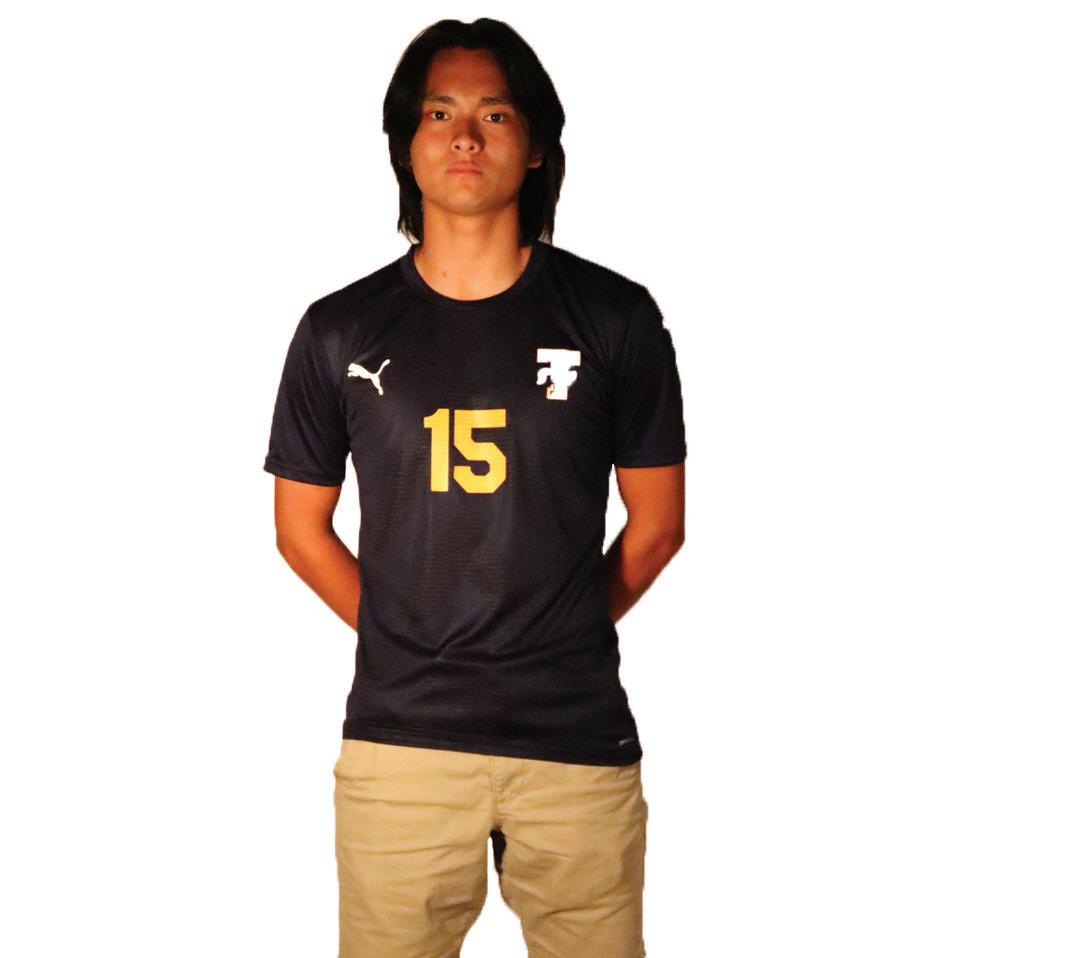












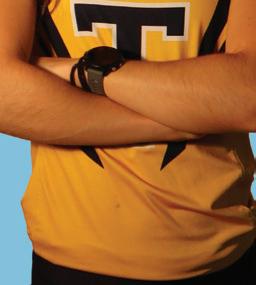

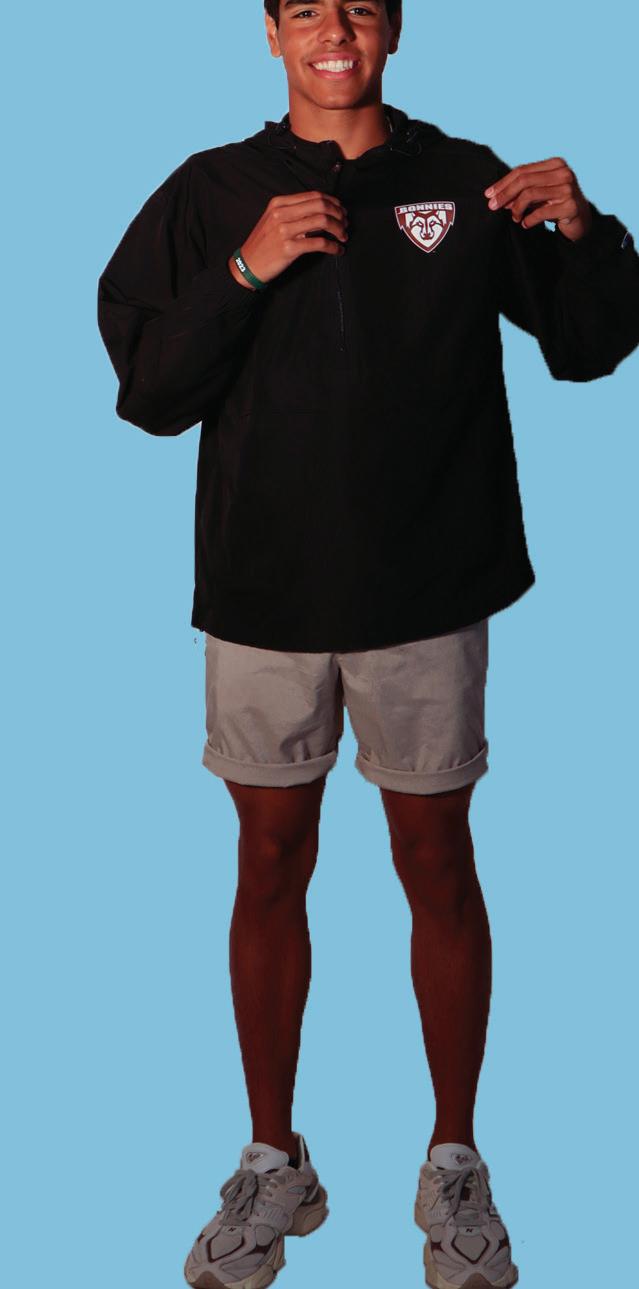

“I’m super excited to get on campus this fall and meet all my teammates! I also can’t wait to play at such a high level, and hopefully play in a National Championship game one day!”

May 2O23 Sports 29
- Kevyn Collazo, Swimming at St. Bonaventure University
- Morgan Cox, Running at Emory University
- Thomas Kienle, Lacrosse at Rollins College
- Je ery Wang, Soccer at Swathmore College
Puzzles by Karthik Stead



8. What can commonly be to the south











What has a neck but no head?

It has keys, but no locks. It has space, but no room. You can enter, but can’t go inside. What is it?
What can you put in a bucket to make it weigh less?
May 2O23
3O
Puzzle
3. the recent past 9, 1982
3 5 6 8 9 4 2 7 10
1. 2. 6.











May 2O23 Advertisements 31
PHOTOGRAPHY EXPOSITION Events on Campus



Senior Sabrina Vicente poses with her dog, Mason, on senior dog day. This day is a tradition that students look forward to each year.

Senior boys, along with sixth grader Emmett Brown, celebrate their recent win after the water balloon toss at Headmaster’s day. e day was packed with friendly competitions across the grades.
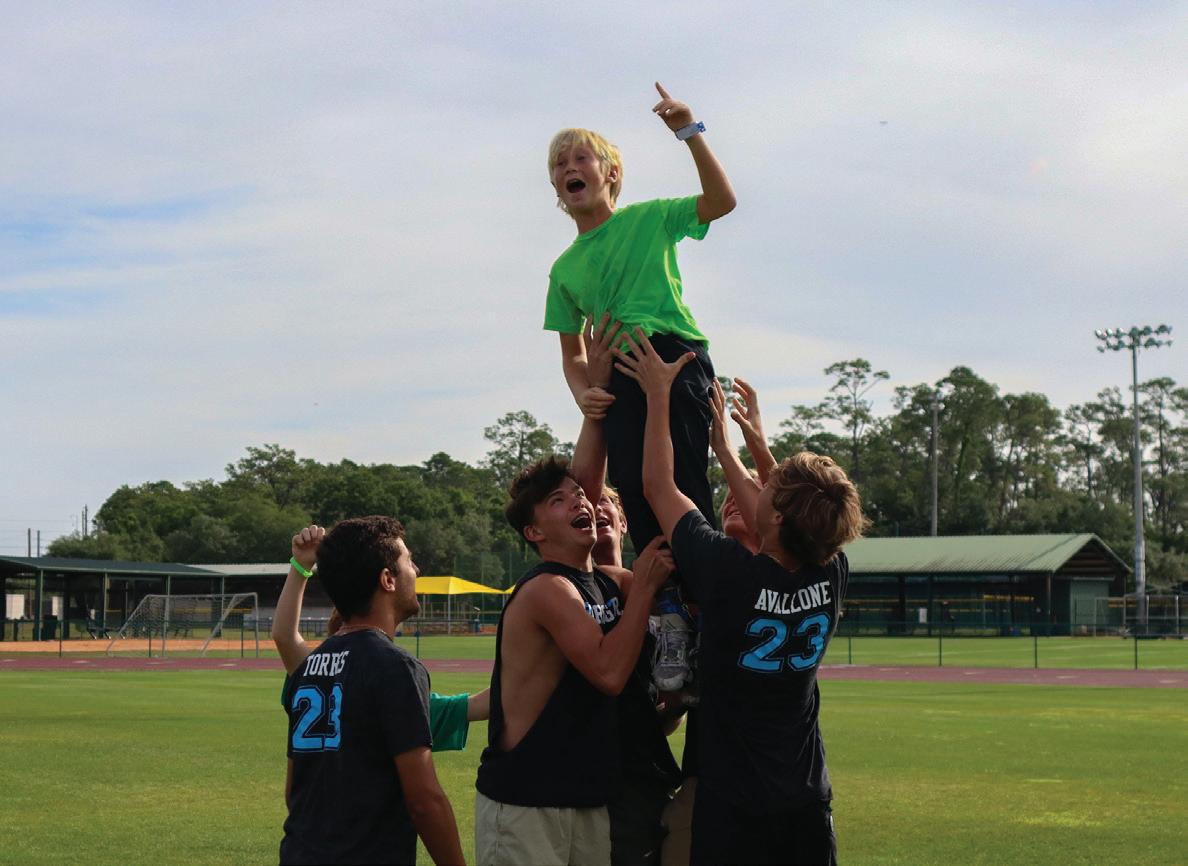
Seniors Jackson Salinas and Sabrina Vicente pose after receiving the titles of prom King and Queen. Juniors and seniors enjoyed the casino-themed prom at the Mezz.

As part of Culture Fest, parents and students share food from more than 26 countries. At this booth, parents serve food from Haiti.

May 2O23 Photos 32
Olivia Prince
Olivia Prince
Olivia Kortman
Olivia Kortman







































 Article by Abby Hernan Photos courtesy of Susan Lilley
Article by Abby Hernan Photos courtesy of Susan Lilley


























































 Article by Laziza Talipova Graphic by Andrew Edwards
Article by Laziza Talipova Graphic by Andrew Edwards
























































 Graphic by Caden Liu
Graphic by Caden Liu












































































































 Photo by Olivia Kortman
Photo by Olivia Kortman





























































































